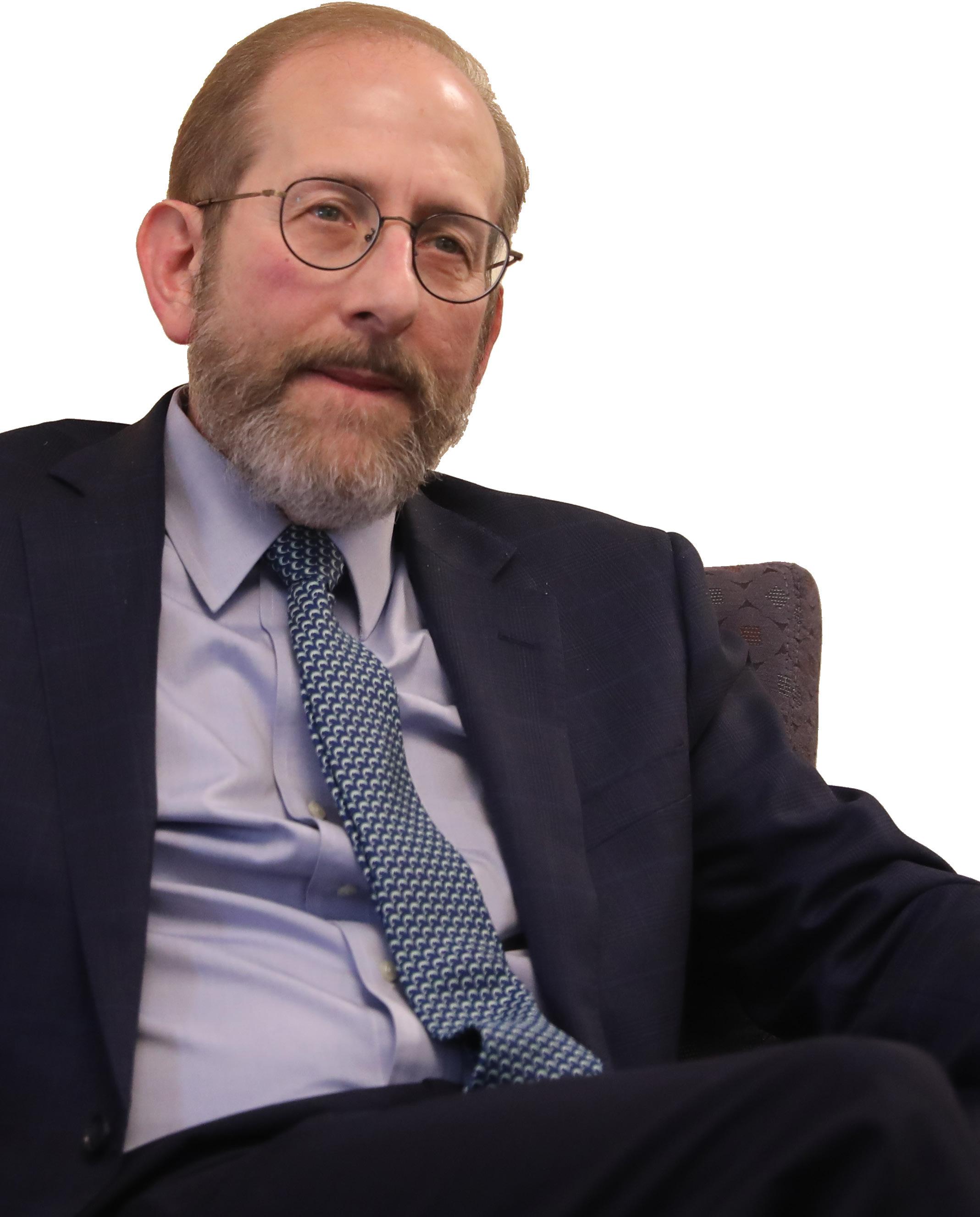THE HARVARD CRIMSON





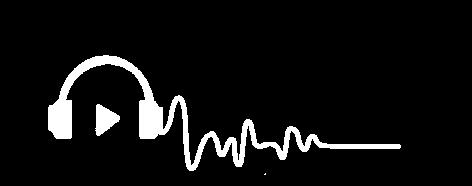

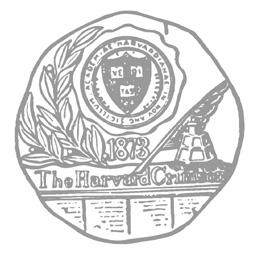

BY EMMA H. HAIDAR AND CAM E. KETTLES CRIMSON STAFF WRITERS
Alan M. Garber ’76 will serve as Harvard’s 31st president, the school announced Tuesday, rewarding the longtime provost-turned-interim president for his efforts to steer the University through its most tumultuous period in decades.
The Harvard Corporation and the Board of Overseers
— the University’s governing boards — voted earlier on Friday to appoint Garber as Harvard’s next leader, a role he will hold until the end of the 202627 academic year. Senior Fellow Penny S. Pritzker ’81 announced that the University will delay the launch of a formal search for Harvard’s 32nd president until 2026.
The decision to strip Garber’s interim title appears to have been made by the governing boards without a formal search process to consider other candidates for the role. Unlike most other presidential searches, the University did not form faculty, staff, and student advisory committees. Instead, Corporation members opted to quietly consult with a select group of faculty members last month before making the appointment.
The announcement comes exactly seven months after former Harvard President Claudine Gay suddenly resigned on Jan. 2, after mounting allegations of plagiarism and unrelenting criticism her efforts to combat antisemitism on campus ended her presidency after just one semester. Garber, second-in-command to three Harvard presidents during his 12-year stint as provost, was thrust into the top job to contend with the University’s worst leadership crisis in decades, a donor exodus, a congressional investigation, and a deeply divided campus over Israel’s war in Gaza.
“We have asked him to hold the title of president, not just interim president, both to recognize his distinguished service to the University and to underscore our belief that this is a time not merely for steady stewardship but for active, engaged leadership,” Pritzker wrote in an email announcing the appointment.
The University did not indicate whether interim Provost John F. Manning ’82, who Garber appointed in March, will permanently remain in his role for the rest of Garber’s presidency.
During his one semester as interim president, Garber has sought to heal a fractured student body, even as he was hit with a congressional subpoena and contended with large-scale pro-Palestine protests that threatened to further destabilize Harvard’s campus. But it was Garber’s deft handling of the converging crises facing the University, including the 20-day pro-Palestine encampment in Harvard Yard — which ended peacefully, without a police response, and in time for Commencement to proceed as planned — that helped convinced the Corporation to strip the interim tag, according to a person familiar with the decision.
“We believe this plan will give Alan and his leadership team the opportunity to sustain and build momentum on a range of priorities and initiatives,” Pritzker wrote.
Pritzker also justified Garber’s three-year appointment as a move that will give the University more time to “reflect, in consultation with others, on how best to approach the future presidential search.”
The Corporation formed a subcommittee to review Harvard’s presidential search process earlier this year and for a while, it appeared that the governing boards intended to first develop a roadmap for the next search before making a permanent appointment. At the time, Pritzker told faculty members in April that the Corporation would not make unilateral appointments, pledging to first reevaluate the search process, which has been widely criticized for being too secretive.
The decision to punt on an official presidential search process for another year will save the Corporation from further scrutiny after the governing boards received almost nonstop coverage in national media outlets during the twilight of Gay’s presidency last year.
But Friday’s appointment also reflected the extent to which Garber has thrilled the Corporation — and other affiliates across the University — with his leadership during the spring semester.
Despite the interim tag, Garber rarely operated as if his position at the helm of the University was precarious, making at least two transatlantic trips and three visits to Washington during his first seven months in office.
“I am the interim president,” Garber said in a February interview with the Harvard Magazine, an alumni publication.
“But the problems we need to deal with are not interim problems.”
In addition to appointing an interim provost, Garber adopted a monumental pledge that Harvard will avoid taking official stances on controversial public policy issues. His presidential task forces on antisemitism and anti-Muslim and anti-Arab bias also released their initial recommendations this summer, with a final report expected in the fall.
Several former Harvard presidents and prominent faculty praised Garber’s appointment on Friday, touting his efforts to steer the University through its greatest challenges.
Former Arts and Humanities Dean Robin E. Kelsey said in a statement that “Alan has been the steadiest and most circumspect of university leaders at a time when those qualities are in short supply.”
Bruce D. Walker, the director of the Ragon Institute of Mass General, MIT, and Harvard, called Garber’s appointment a “brilliant choice.”
“Alan Garber is an inspirational and principled leader who is the perfect person to steward Harvard through challenging times,” Walker wrote.
“Having had the opportunity to work closely with him as he led the University through the fractious COVID crisis, I have profound respect for his integrity, judgement, investment in others, and his ability to build consensus.”
Garber is also the first Harvard president in more than 50 years with a degree from Harvard College. The last Harvard president to receive an undergraduate degree from the University was Nathan M. Pusey, class of 1928, who served from 1953 to 1971.
Garber also has a Ph.D. in Economics from Harvard and a M.D. from Stanford Medical School. He previously served as a member of Stanford University’s faculty for 25 years, where he led the Center for Health Policy and Center for Primary Care and Outcomes Research.
In 2011, Garber returned to Cambridge after former Harvard President Drew Gilpin Faust recruited him to serve as her provost.
“Serving the University is a great privilege,” Garber wrote in his email on Friday. “I am excited by the prospect of what we can achieve in these next years and will have more to say about our efforts on many fronts when the fall term begins.”
emma.haidar@thecrimson.com cam.kettles@thecrimson.com

SON PHOTOGRAPHER
Alan M. Garber ’76 will forgo a traditional presidential inauguration, a University spokesperson confirmed on Sunday, avoid-
ing a scenario that would have seen Harvard host its second installment ceremony in as many years.
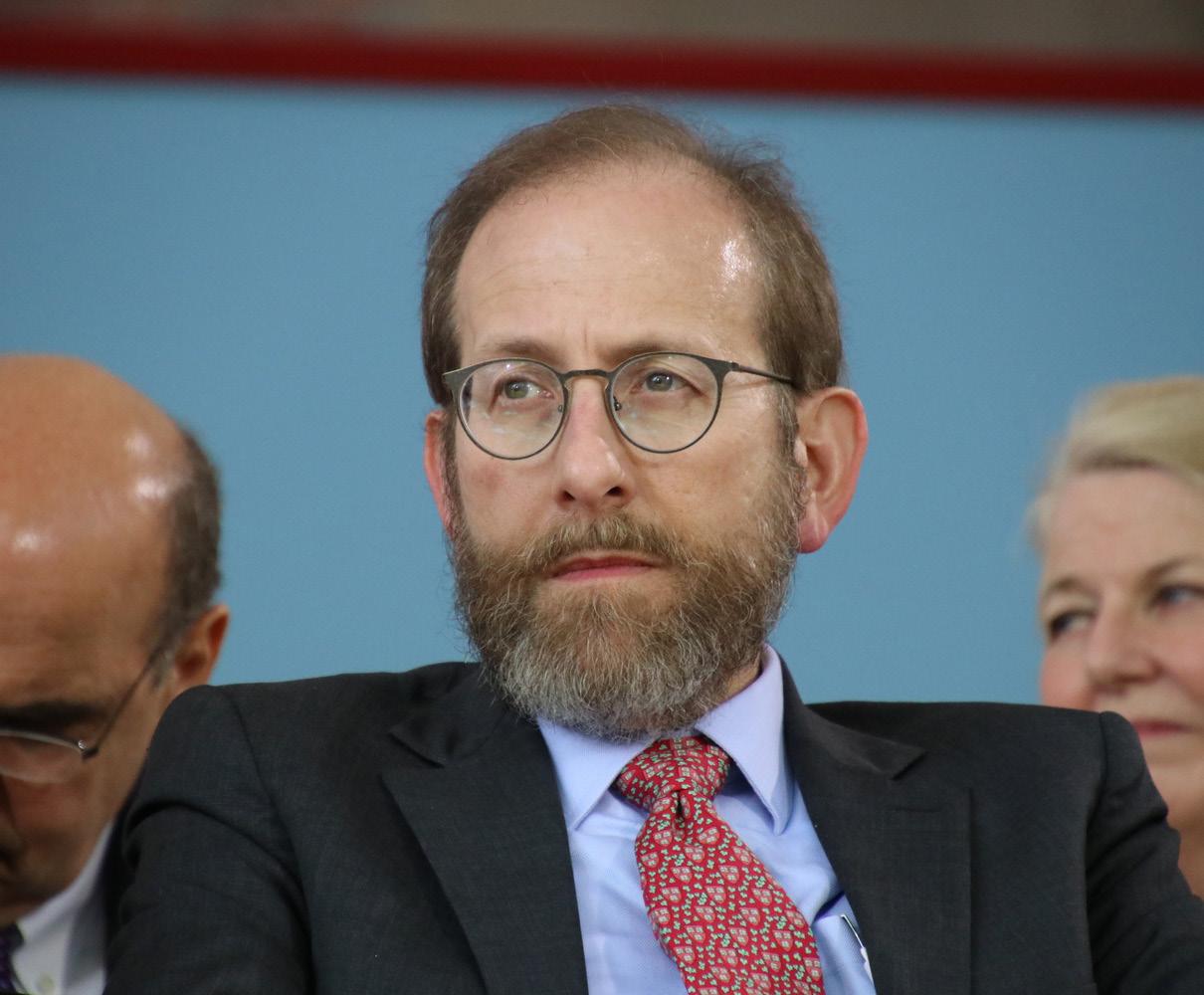
The decision will break with centuries of precedent as Harvard typically hosts a University-wide ceremony to celebrate its newly-appointed presidents, but it also underscores Garber’s own view of his tenure as a leader tasked with guiding Harvard through its current crisis.
Garber suddenly found himself at the helm of the nation’s oldest academic institution when former Harvard President Claudine Gay resigned on Jan. 2, after just six months in office. In a University-wide email shortly after Gay stepped down, Garber acknowledged the extraordinary circumstances that led to his elevation as president.
“Our task is difficult yet essential, and we have much work ahead of us,” Garber wrote. “Although I regret the circumstances that have me writing to you as your interim president, please know that I will serve with a dedication to the Harvard I know and cherish.”
Former Harvard President Claudine Gay’s inauguration in September 2023 drew hundreds of people to Tercentenary Theater, including delegates from 185 educational institutions, Massachusetts Governor Maura T. Healey ’92, and three former University presidents.
Her address to attendees was an opportunity to introduce herself as Harvard’s new president and, on a broader level, a representative of higher education.
“I stand before you today humbled by the prospect of leading Harvard, emboldened by the trust you have placed in me, and energized by your own commitment to this singular institution and to the common cause of higher education,” Gay said.
Gay’s installment ceremony consumed the campus in much the same way Commencement does each year. Tercentenary Theatre was set with its massive tent and stage for dozens of Harvard administrators and faculty. And despite the rain, the Yard was packed with Harvard affiliates eager to witness the inauguration of their new president.
Affiliates were given ceremonious pins and invited to a “community-wide celebration” with performances and food to ring in the new administration. And a more exclusive group of guests were treated to a private reception in Annenberg Hall, complete with tiramisu and chocolate fountains. Undergraduates were even surprised in the dining halls with Claudine Gay commemorative cookies and cupcakes.
There will be no Garber cupcakes this year, but it is still possible that the University will decide to honor Garber in a more subdued — and less costly — format. Another option is that Garber will hold a private ceremony behind closed doors for select members of University leadership. In an email after Harvard Corporation Senior Fellow Pen-
“Following
Jan. 2
Gay
Jan.
Jan.
Feb.
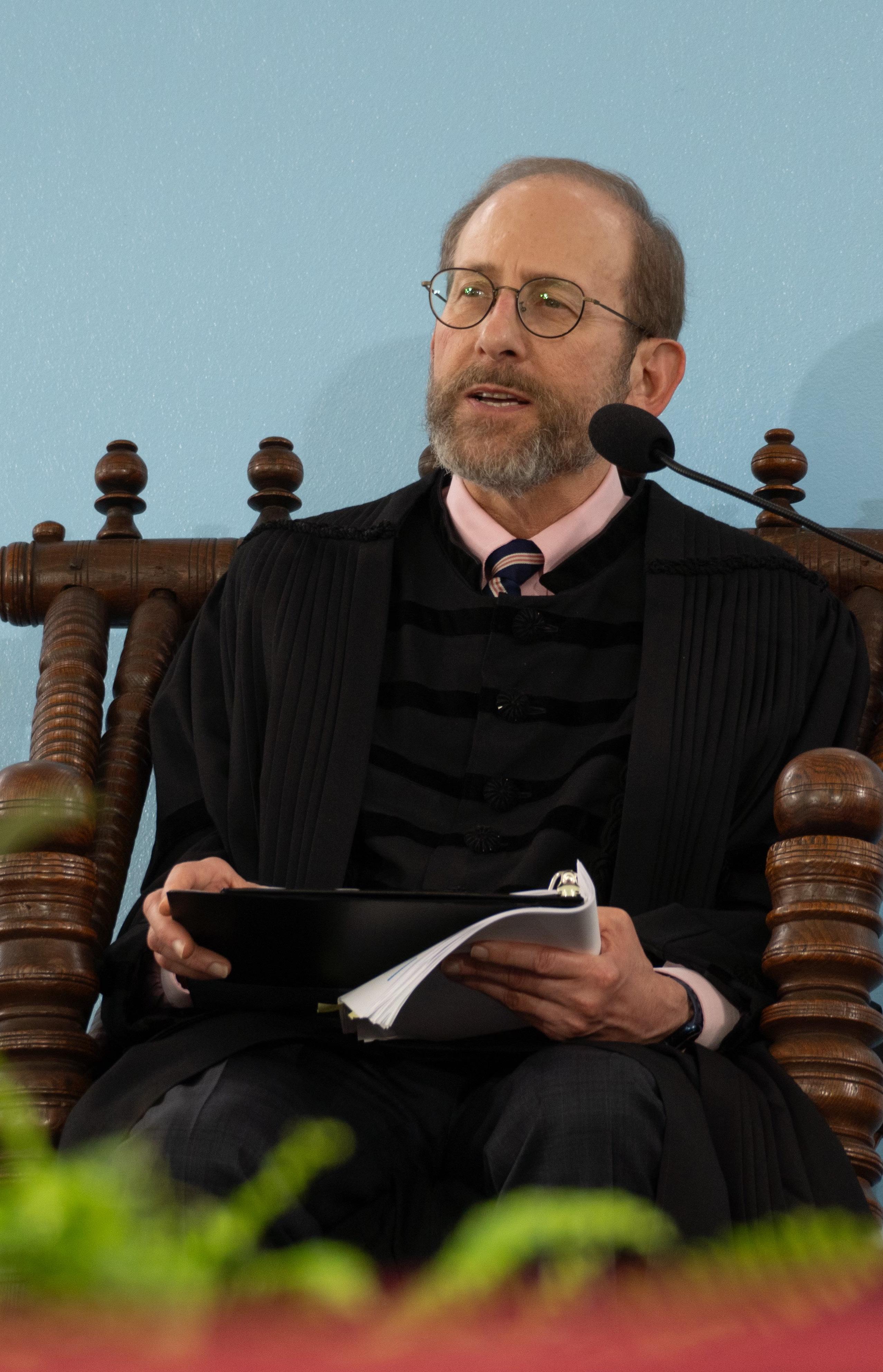
exodus, federal lawsuits alleging severe and pervasive campus antisemitism, and a congressional investigation. The expectation was that he would produce results and guide Harvard out of crisis.
inside University buildings or on walkways. The rules were tightened a second time in July when chalk and unapproved signs were explicitly prohibited.
dling while delaying new policies or statements that might reignite University critics.
April
Alan M. Garber ’76’s first semester in Harvard’s top job would have tested even the most battle-hardened university president — and technically, he was not even the real president.
After former Harvard President Claudine Gay’s resigned on Jan. 2, Garber — who served for 12 years as provost in the shadows of the University’s administration — suddenly found himself in the national spotlight. Garber inherited a media firestorm, a campus fractured over Israel’s war in Gaza, a donor
The 213 days that followed were an audition, and Garber delivered. A series of public and administrative victories convinced the Harvard Corporation — the University’s highest governing body — to keep Garber at the helm until June 2027, a vote of confidence in Garber and a recognition that the University is not yet in the clear.
Never a Placeholder President
Even in an interim capacity, Garber entered the presidency in January with a series of decisions before him that could not wait for Gay’s permanent successor to be appointed. His first official policy decision was to update the University’s protest guidelines to effectively prohibit demonstrations
Although there is still widespread disagreement about how or when these rules should be enforced, Garber’s policies gave the University grounds to restrict the activity of pro-Palestine protesters that had become a dominant force during the fall months.
On a series of other major dividing issues, Garber’s strategy for the spring was to toss the issues back to the faculty, convening four different faculty groups to hear from affiliates and develop recommendations to address antisemitism, anti-Arab and anti-Palestinian bias, academic freedom, and institutional neutrality.
The University’s response to antisemitism lay at the heart of Gay’s disastrous Dec. 5 testimony before Congress and the task forces allowed Garber to promise action on the issues that she had been accused of mishan-
While the academic freedom and institutional neutrality groups were formed later in the semester without attracting attention, Garber’s first major controversy came after naming History professor Derek J. Penslar as a co-chair of the task force on antisemitism.
Critics, including former Havard President Lawrence H. Summers, alleged that Penslar — the director of Harvard’s Center for Jewish Studies — had minimized concerns around campus antisemitism. Garber stuck by Penslar, who stayed on despite the early media storm.
Harvard Business School professor Raffaella Sadun later resigned from the same task force over concerns that Garber would not implement the eventual recommendations in full. Garber never publicly acknowledged the backlash, and the task forces were able to continue listening sessions and eventually release initial recommenda-
tions in June. In an email to Harvard affiliates announcing the recommendations, Garber wrote that the University would review and implement shorter-term items while pledging that longer-term recommendations would be considered “in due course.” Garber’s most definitive act as interim president — committing the University to avoid taking official positions on matters of national controversy in May — was seen by a large contingent of faculty and administrators as a needed safeguard against the initial backlash Gay in early October. It was a tangible change that demonstrated Garber’s willingness to make decisions that would outlast him despite his “interim” status. It was the kind of action he had promised. “I am the interim president,” Garber told Harvard Magazine in February. “But the problems we need to deal with are not interim problems.”
‘The Formal Title’
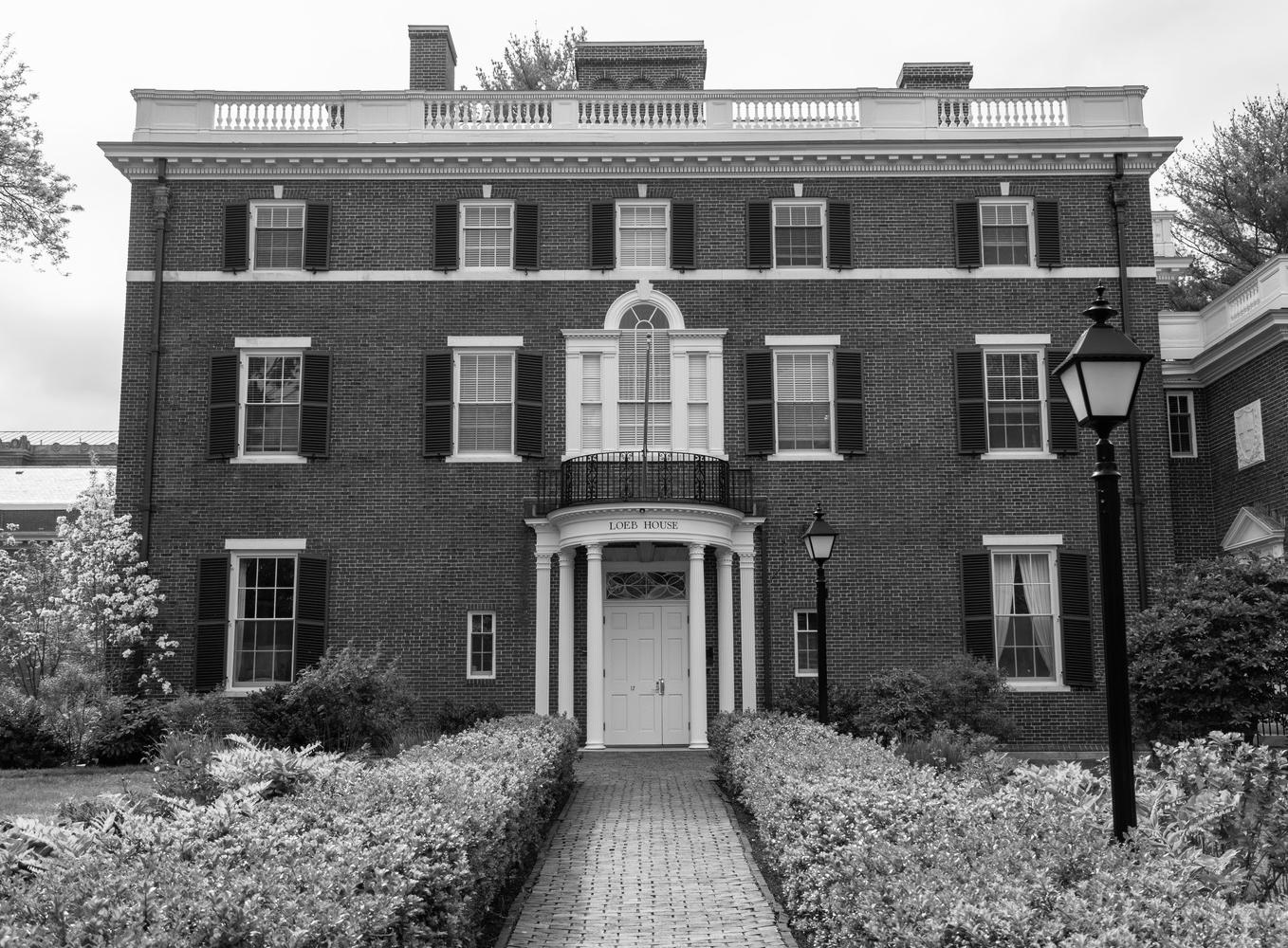
When Garber took office on Jan. 2, Harvard Corporation Senior Fellow Penny S. Pritzker ’81 told affiliates that a formal presidential search would begin “in due course.”
Then Pritzker and the Corporation went silent, providing no updates about the status of the University’s next search until a meeting with members of the Faculty of Arts and Sciences in late April. At the meeting, Pritzker revealed that the Corporation had formed a subcommittee to review the search process but did not disclose any details about the timeline for the appointment of the University’s 31st president.
When former Harvard President Bok was appointed interim president after Summers resigned in 2006, the search for his successor began within one semester. Likewise, in the last two presidential searches, search committees were convened within one month of the incumbent’s announced departure.
The Corporation’s silence was an implicit vote of confidence in Garber, who was free to lead Harvard on an indefinite timeline.
“I had noticed that they were not moving ahead with the search process already, and I assumed that they probably had decided to do something unusual,” said former Harvard President Neil L. Rudenstine.
In his seven-month interim stint, Garber made several leadership decisions character-
istic of a permanent president, including tapping Stanford University professor Jeremy M. Weinstein to serve as the dean of the Harvard Kennedy School and former Harvard Law School Dean John F. Manning ’82 to be interim provost.
Former Harvard President Lawrence S. Bacow said the appointments and policy changes could not wait, but that Garber’s role will become easier ahead without the interim qualifier.
“He’s doing the job as it is now, and I think it will be easier for him to do the job and better for the institution if he has the formal title to go along with it,” Bacow said.
Garber’s Encampment Victory
Garber faced his biggest challenge in May: ending Harvard’s pro-Palestine encampment without appearing to make concessions and without using police force.
Protests had been slow to build over the course of the semester, but encampments at Columbia University and Yale University had inspired a new wave of escalation. For 20 days, Harvard’s protesters occupied the center of campus and refused to leave until Harvard divested from Israel.
Many universities dealt with protests using brute force, allowing police to evict and arrest protesters, drawing fierce condemnation from students and faculty. A small number of oth-
ers, like Northwestern University, struck deals with their protesters and were promptly called before the House Committee on Education and the Workforce for testimony.
Despite rising tensions, Garber eventually brought an end to the demonstrations without police involvement or public concessions to protesters.
His preemptive decision to restrict access to Harvard Yard in anticipation of a protest allowed the University to wait the protesters out while attempting to discipline them through both the Harvard College Administrative Board and with involuntary leaves of absences.
And as Commencement barrelled closer, Garber convinced the protesters to voluntarily end their encampment by reinstating the students put on leave, offering them a meeting with a member of the Corporation, and promising to encourage the schools to discipline students “expeditiously under existing precedent and practice.”
It was a negotiation that allowed Garber to remain unmoved on the question of divestment and celebrate a peaceful ending.
Though Garber faced extensive backlash from students and faculty for the Administrative Board’s decision to later suspend five students and place more than 20 on probation, avoiding a police response was a major win in the eyes of the Harvard Corporation.
The decision widened the rift
between the Corporation and the faculty, which unsuccessfully attempted to confer degrees to 13 students barred from graduating over encampment-related discipline. That anger was on full display at the Commencement Ceremony May 23, where more than 1,000 students walked out in protest.
Eleven of the degrees were quietly conferred in July after the Administrative Board reversed the suspensions and reduced the probationary periods. The exchange soured many students’ feelings toward Garber, but accepting the Faculty Council’s appeal eased tensions with affiliates.
“Alan has done an outstanding job leading Harvard through extraordinary challenges since taking on his interim presidential duties seven months ago,” Pritzker wrote in her Aug. 2 email announcing Garber’s appointment.
Three More Years of Garber
Officially Harvard’s 31st president, Garber must continue to grapple with many of the same challenges that he inherited in January.
The recommendations by three out of his four task forces and working groups are mostly unknown and unrealized. But after months of deferring to group chairs to formulate recommendations, it is now Garber’s responsibility to start taking action.
In their preliminary recommendations released in June,
task force chairs suggested the University do more to support doxxed students, handle disciplinary matters consistently across Harvard schools, and make public aggregate data regarding disciplinary cases related to discrimination complaints. Both offered a sober assessment of campus culture as well as the lack of administrative response to student concerns.
“The work ahead of us will require concerted effort,” Garber wrote in an email to affiliates, following the release of the preliminary recommendations.
“As both task forces work towards final recommendations, their preliminary recommendations offer a path forward,” he added.
The University remains under a House-wide investigation and Garber still faces a congressional subpoena from the House Committee on Education and the Workforce over Harvard’s response to antisemitism. Congressional leaders have also repeatedly suggested that Harvard’s federal funding could be at risk if it is found to have not taken adequate action.
And neither Garber nor the Corporation know how the campus pro-Palestine groups will respond in the fall.
Still, Garber’s presidency now has two things it did not have in the spring: the legitimacy of a permanent appointment, and an end date.
emma.haidar@thecrimson.com cam.kettles@thecrimson.com aran.sonnad-joshi@thecrimson.com April
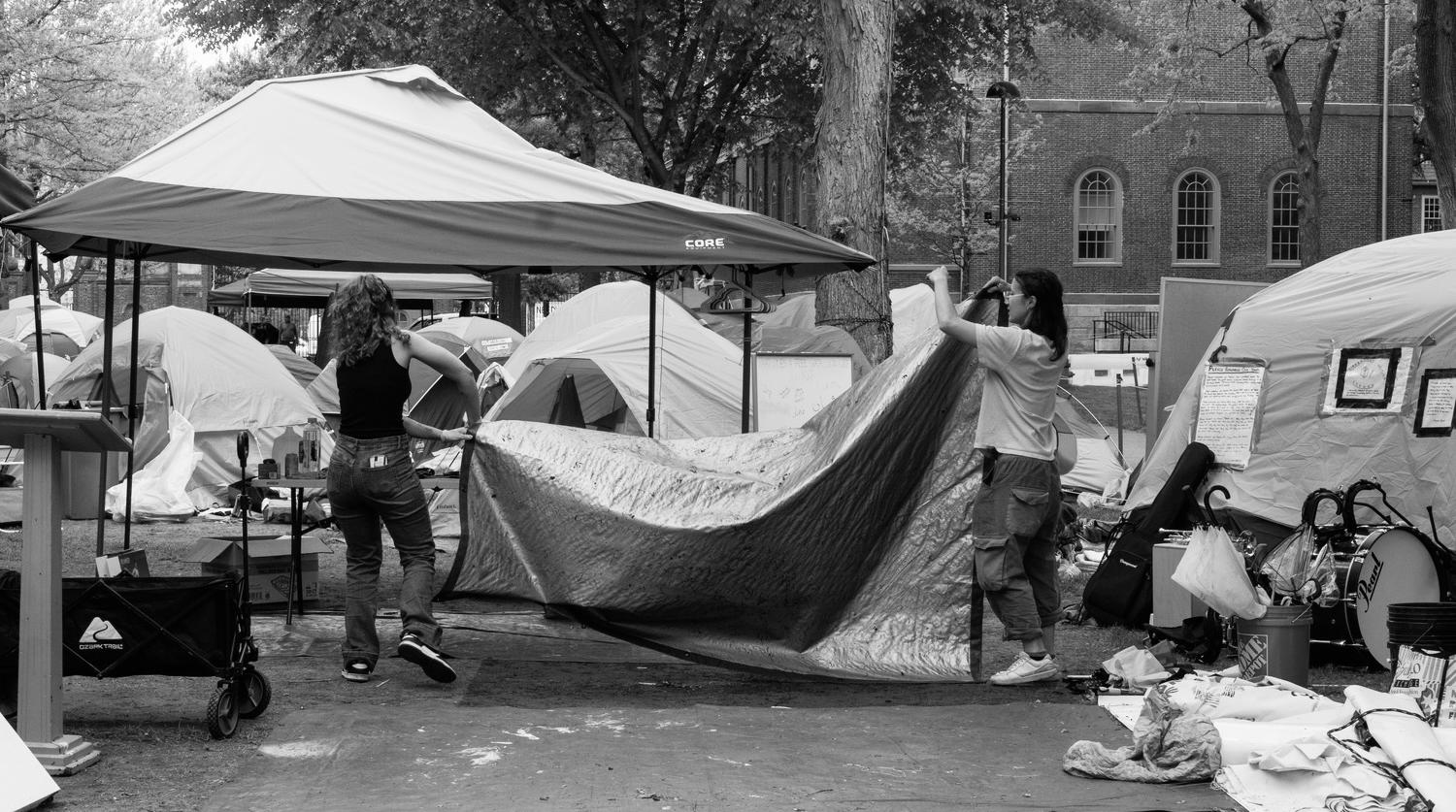
Harvard faculty members overwhelmingly applauded the Harvard Corporation’s Friday decision to promote Alan M. Garber ’76 from the University’s interim president to its permanent one, deeming him a steady leader capable of stabilizing a campus in crisis.
The faculty, among Garber’s most crucial constituencies, called the appointment wise and pragmatic and praised his ability to peacefully defuse the 20-day pro-Palestine encampment in Harvard Yard and his 12-year tenure as Harvard’s provost. Their responses suggest that if Garber’s primary goal is guiding Harvard out of the political spotlight, he will likely have the backing of an increasingly influential faculty.
The Crimson spoke with or obtained statements from 116 faculty members, 110 of whom backed Garber’s leadership and the Corporation’s choice.
The responses indicated widespread respect for Garber, who has experienced virtually every role that Harvard has to offer. After receiving his bachelor’s degree, master’s degree, and Ph.D. from the University, he went on to serve as one of its professors, its top academic officer, and, now, its president.
At the same time, the responses suggested a general weariness among faculty members after yet another tempestuous semester. A shared desire among many faculty members was for a return to normalcy — and a renewed focus on the University’s academic functions.
“We would be at a much better place if we were to focus on scholarship,” Astronomy professor Abraham “Avi” Loeb said. “That’s the strength of Harvard — bringing the best minds together and not necessarily the minds that think alike on political issues.”
Garber, many faculty said, would bring about that shift.
“I credit his leadership for threading the needle and bringing us to a much better place, where we can focus on the core institutional mission in the coming academic year,” Biology professor Benjamin L. de Bivort wrote in an email. Still, the relationships between faculty and Garber’s administration was not without its bumps. During the encampment, widely viewed as a test of Garber’s leadership, some pro -
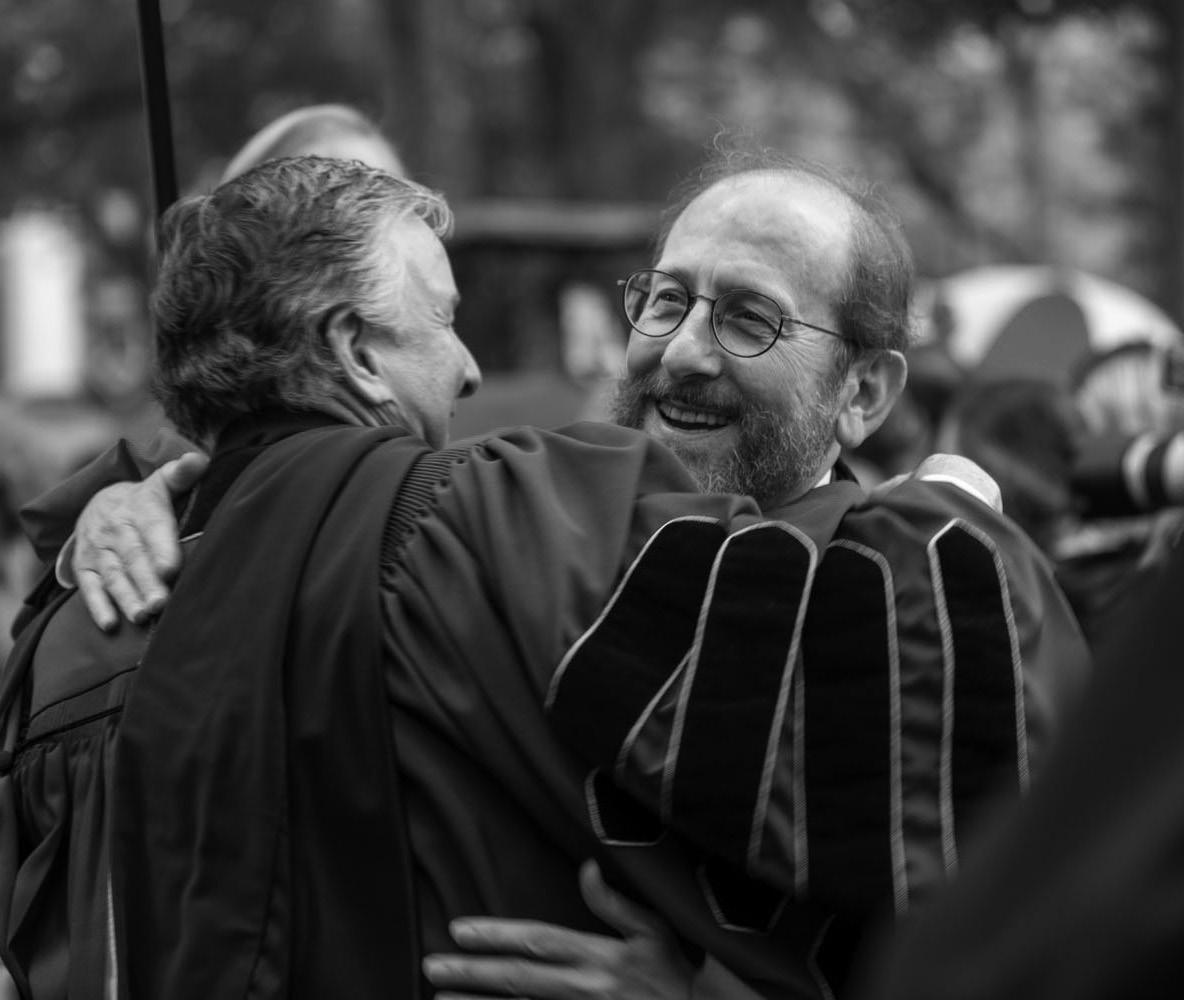
fessors urged administrators to open dialogue with student activists and criticized what they saw as the administration’s refusal to engage with student demands. In one exchange, faculty members even laughed incredulously at a non-answer from interim Provost John F. Manning ’82 during a meeting of the Faculty of Arts and Sciences.
But on the 20th day of the Harvard Yard encampment, Garber struck a deal with organizers, in a surprise agreement that allowed the encampment to end peacefully. The move largely satisfied faculty, who had almost uniformly urged against police involvement.
In an emailed statement, Mathematics postdoc Ashvin A. Swaminathan ’17 contrasted Garber’s response to student protests with the police crackdowns at dozens of other institutions.
“He is to be lauded for handling the recent spate of student protests with respect and grace, reaching a peaceful resolution with the protestors in a way that caused minimal disruption to university operations,” Swaminathan wrote. “By contrast, administrators at other universities antagonized protestors by failing to listen to them and by needlessly involving law enforcement.”
“He’s really kept the temperature down, as far as I can tell,” Harvard Medical School professor and two-time interim dean Barbara J. McNeil said in an interview.
But Garber’s handling of the encampment failed to mollify all faculty, some of whom felt he had promised leniency for graduating student protesters and backtracked on that commitment when the Harvard College Administrative Board moved to place 13 graduating
students on probation or suspension, barring them from receiving their diplomas on time.
Though the Corporation ultimately, after a back-andforth with the faculty, permitted 11 of the 13 to graduate, the episode left Garber with dwindling trust and support among student activists and their faculty allies.
“I would describe my enthusiasm for a continued Garber administration as neutral at best,” Sanskrit preceptor Patrick Cummins wrote in a statement.
“And it seems the Garber administration, which got us in such a mess last year and which will be here for the immediate years to come, hasn’t learn any good lessons from recent events when it comes to how to constructively engage with their employees and students,” he added, condemning Harvard’s newly announced cam -
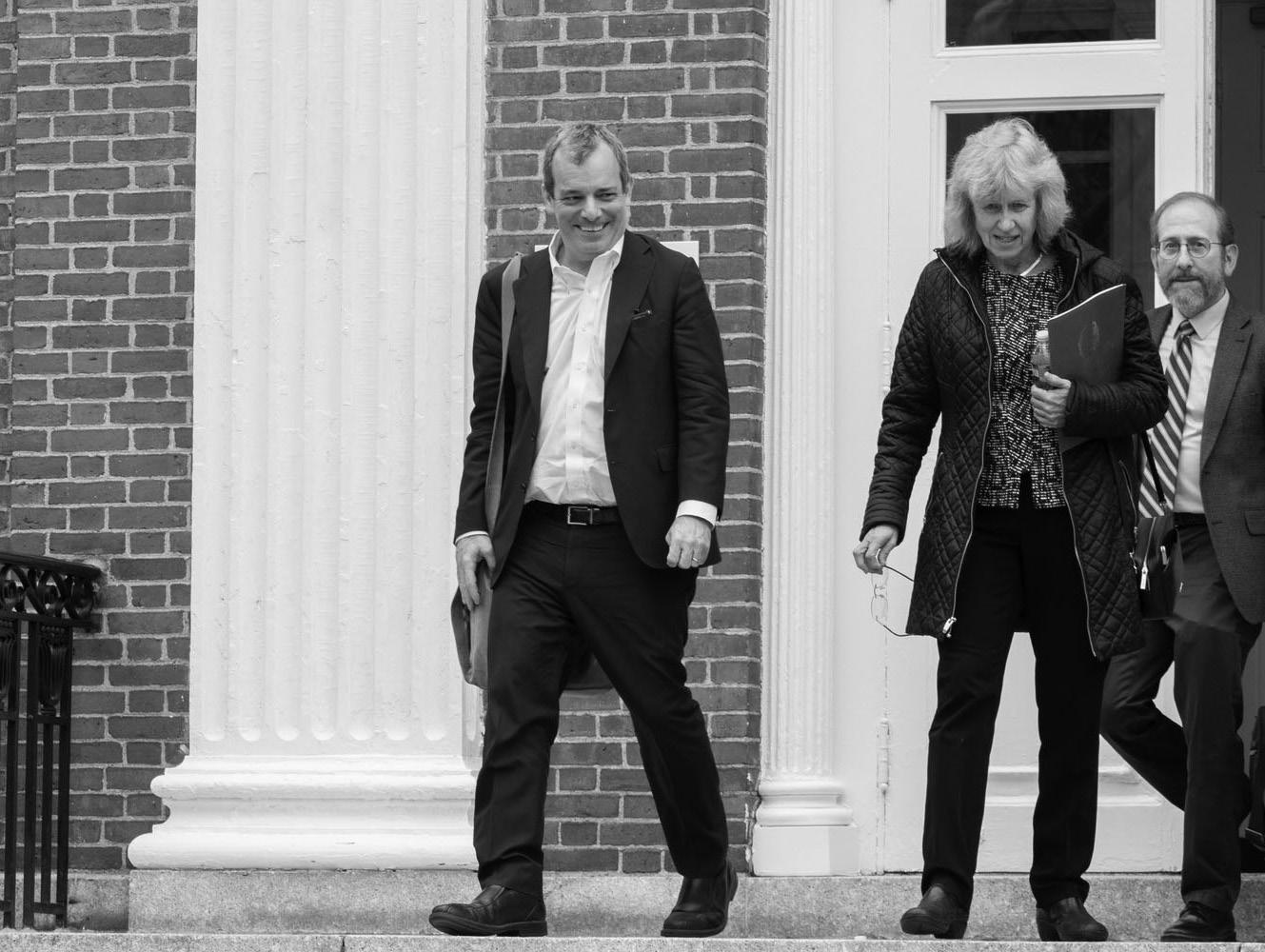
pus use rules as too restrictive and “Orwellian.”
Garber’s ability to navigate public perceptions of Harvard may prove just as important as his ability to manage the actual situation on campus — especially as critics in Congress press forward with investigations of the University.
Since donors and politicians began clamoring for then-President Claudine Gay’s departure in the fall, many Harvard faculty have expressed alarm about outside political pressure on the University. Still, they said Garber has the poise and political acumen to shield Harvard from ongoing scrutiny from Washington.
Government professor Theda Skocpol praised Garber’s “firm hand” and said that, without flashiness, the interim president had calmed the controversy engulfing Harvard.
“Various colleagues can agree or disagree with this or that decision, but he has removed Harvard from being an open political football and reasserted core values about research, teaching, excellence,” Skocpol said.
Classics professor Gregory Nagy wrote in an email that he was “optimistic” about Garber’s presidency.
“He is seraphically patient— and diplomatic,” Nagy wrote.
“His skills in diplomacy will I hope be a powerful antidote that will free us from the political toxicity that had led, unjustly, I think, to the resignation of his predecessor.”
In naming Garber Harvard’s 31st president, the Corporation left him with an unusual threeyear limit.
Though his term will be short, Garber faces no shortage of presidency-defining decisions. In the next three years, if the push to form a University-wide faculty senate continues, it will be up to Garber to determine the relationship between the senate and Massachusetts Hall.
As interim president, Garber adopted a University policy against issuing statements on controversial issues — a popular move among faculty, but one whose consequences have yet to be felt. He also appointed task forces on addressing an -
tisemitism and anti-Arab, anti-Muslim, and anti-Palestinian bias, which will issue their full recommendations in the fall. How Garber acts on those recommendations will be another test of his administration.
The Corporation’s move allowed them to reinforce Garber’s mandate while deferring a full-blown presidential search — usually a monthslong process of nominations, vetting, and advisory committees.
Several faculty said they thought Garber’s tenure would give the University breathing room to conduct a search out of the national spotlight.
“The Corporation’s reasons for appointing Alan to a term of office are understandable, given the unusual circumstances we face and the intense, partisan scrutiny universities are under,” Harvard Kennedy School professor Arthur I. Applbaum wrote in an emailed statement. “For a permanent appointment, a time-consuming, uncertainty-creating search taking us well into the next year would be required, but we need decisive leadership now.” Harvard Law School professor Richard H. Fallon Jr. said he thought Garber, whose leadership he praised as “steady, sensible, smart,” would allow Harvard to move forward from its protracted crisis by the time his successor takes office.
“I am confident that the University will be in better shape to be handed over to somebody else to be the new president three years hence, as a result of Alan Garber’s having this interim period to try to steady things,” Fallon said.

The end date of Garber’s presidency, on June 30, 2027, sets his tenure apart from that of almost every other Harvard leader in recent memory. Most past presidents of Harvard served without term limits and were allowed to determine their own retirement, but Garber, 69, is now a lame duck president from Day 1.
Harvard President Alan M. Garber ’76 no longer has the interim title, but he is still the interim president in almost every other way.
Harvard Corporation Senior Fellow Penny S. Pritzker ’81 named Garber to a three-year term as the University’s 31st president on Friday, with a search for the University’s 32nd president to launch in 2026.
The appointment solidifies his tenure as a bridge presidency. Garber has a mandate from the Corporation to guide Harvard out of the storm and into calmer waters — and he has three years to do it.
Richard P. Chait, a professor at Harvard Graduate School of Education who has advised the University’s governing boards, said in an interview that Garber’s presidency will be “perfect to reposition the University.”
“And a way, frankly, to time when the college presidency becomes a more attractive proposition for more people,” he added.
The idea behind keeping Garber at the helm of the University is that he will have enough time over the next three years to execute his plan for fixing Harvard, which includes making the most prestigious job in higher education appealing again.
Former University President Lawrence S. Bacow said that Garber’s appointment gives Harvard
University’s presidential search process in preparation for recruiting Garber’s successor.
Many affiliates have criticized past presidential searches as too opaque and insular. The Corporation’s most recent search — which ended in the selection of former Harvard President Claudine Gay — also faced backlash from some critics who faulted the governing boards for moving too quickly and not conducting a review of Gay’s academic record.
The extended timeline to appoint Garber’s successor will also take some public pressure off of Pritzker, who many held responsible for the leadership crisis that ensued following Gay’s resignation.
Pritzker refused to step down
hot water — from threatening to sue the New York Post for defamation over Gay’s plagiarism allegations to relying on lawyers during the disastrous congressional testimony in December — rested with Pritzker and the Corporation.
The decision to launch the next search in 2026 is also a gamble for the Corporation as they are effectively betting that the two years from now will be a better time to pick a University president — both for those who aspire to be candidates and for those tasked with searching for them.
“I think the Corporation was looking at the University in a very turbulent period of time, and with a significant probability of times getting even more turbulent in short order, depending on how the election would turn out,” said Paul Reville, a professor of education policy and administration at the HGSE.
Many University insiders praised Garber’s appointment and the move to delay the next search process.
icy changes in response to the recommendations from the antisemitism and anti-Arab and anti-Muslim bias task forces, as well as navigating a contentious congressional investigation and reassuring frustrated donors and alumni.
But his decisions about what policies to adopt and what statements to make, especially after vowing to avoid statements on controversies entirely, will undoubtedly anger some affiliates and external critics.
“There seems as if there will always be some segment of the population — some sub-constituency — that’s disgruntled about some issue,” Chait said.
ident would because that’s what these times demanded,” Reville added.
Former University President Derek C. Bok — the last person to serve as an interim Harvard president prior to Garber — noted that while the Corporation’s announcement set a start time for the next presidential search, it “does not foreclose extending the time.”
“If,
S. Bacow Former University President
“continuity at a time where the institution really needs it.”
“We also should recognize that this would not be an ideal time to try and recruit a new president,” Bacow added. The Corporation will now have roughly two years to conduct an extensive review of the
from her role in the immediate aftermath of Gay’s resignation, but the launch of another presidential search could have brought back the media spotlight that the Corporation has been desperate to avoid. Several of the high profile decisions that landed Harvard in
Former University President Neil L. Rudenstine, who served from 1991 to 2001, called the Corporation’s decision “very thoughtful and wise.”
“We need to see how Alan himself manages these next couple of years,” Rudenstine said. “And I expect that will be very well, but it’s premature to think about the next step yet.”
Garber’s priorities in the next three years will likely include pol-
“A university president today is going to come under attack from someone,” he added. “It’s just that simple.” Even before the University could make a final announcement, the initial recommendations from his presidential task forces were slammed by some Republicans in Congress as “weak” and inferior to a set of recommendations Gay received from her antisemitism advisory group in November 2023.
Still, Garber’s limited tenure will give him some additional insulation from backlash to unpopular decisions as he will already be on his way out of office.
Reville said that Garber now has a “fair open pathway to enacting things he wants to do.”
“Frankly, in his interim period, he’s been moving forward in much the same fashion as a pres-
Let’s hope the only thing that isn’t interim about Harvard’s 31st president is the name.
President Alan M. Garber ’76 is just the person to lead the University through the dark times that still lie ahead, but this institution requires more than a caretaker presidency to take it boldly into a brighter future. When the Harvard Corporation announced Friday that Garber would remain on through at least the 20262027 academic year, losing the word “interim” from his title, it was so clearly the right choice that it almost didn’t feel like news.
In the first few months of his tenure, Garber has, by all accounts, met one of the most uniquely challenging moments in this University’s more than 400 year history. He has crisscrossed the world to reassure donors, alumni, and politicians; taken surprisingly swift action on questions raised in the past year, like whether to adopt a policy of institutional neutrality; and managed a pro-Palestine encampment far more deftly and peaceably than many of his police-happy peers. Garber’s string of successes should come as no surprise. Having spent more than a decade in the University’s second-highest administrative post, he had the experience, the relationships, and, most importantly, the hard-earned trust necessary to steady the institution after he ascended to the role over winter break.
Now, while the immense problems that foisted his predecessor continue — congressional investigations, federal discrimination suits, war between Israel and Hamas — so must Garber.
Back still against the wall, the University simply does not have the luxury to press the reset button again, leaving a new president to build, from scratch, relation-

ships with the donors, politicians, and other key stakeholders who hold Harvard’s fate in their hands. There would be no better way to end the tenure of the University’s 32nd president before it begins than dropping them directly into the fire, particularly as a wider war in the Middle East or a second Trump presidency threaten to throw on more fuel.
In short, Harvard’s 32nd president deserves as close to a blank slate as possible, and Garber can give it to them. But give it to them he must.
Having now followed two of its shortest-ever presidencies with what will likely be a third, this University has gone too long without a transformative leader at its head — someone with a real vision for not just the next year but the next quarter-century. For just the same rea-
sons he’s an excellent caretaker for this moment, steady, cerebral, unflappable Garber does not immediately strike us as the kind of dynamic changemaker we’d prefer for the next.
We have reason to believe that the Corporation really does intend to search for Garber’s successor in roughly two years — Why make a promise you don’t intend to keep? — but because the world can disturb even the best-laid plans, we feel compelled to say: Do not let prudence become paralysis.
So far as practicably possible, the Corporation must not allow new challenges or complications to further delay the beginning of this storied institution’s next chapter, using the coming few years to conduct a thorough presidential search in close consultation with all
corners of the University community.
In this strange interregnal presidency, meanwhile, Garber has a delicate balance to strike between action and deference. The past year has surfaced many pressing questions about the future, from how to ethically manage the endowment to how to ensure more open and constructive engagement on campus. Some may require answers now — the quickly-advancing faculty senate proposal comes to mind — but Garber would do well to leave the largest questions about Harvard’s future to the president who will be hand-selected to lead us into it.
Of course, Garber does not lack for near-term priorities to fill his agenda, one of which should assuredly be mending fences with the pro-Palestine coalition. Toward the end of an impressively cool-headed performance managing the encampment last spring, Garber bungled. After he wrote in a University-wide message
meetings. In order to ensure the impartiality of our journalism, Crimson editors who choose to opine and vote at these meetings are not involved in the reporting of articles on similar topics.
Alan Garber’s Still an Interim President. That’s a Mistake.
BY HENRY P. MOSS IV
Ithey will search for his eventual successor at the end of the 2026-2027 academic year.
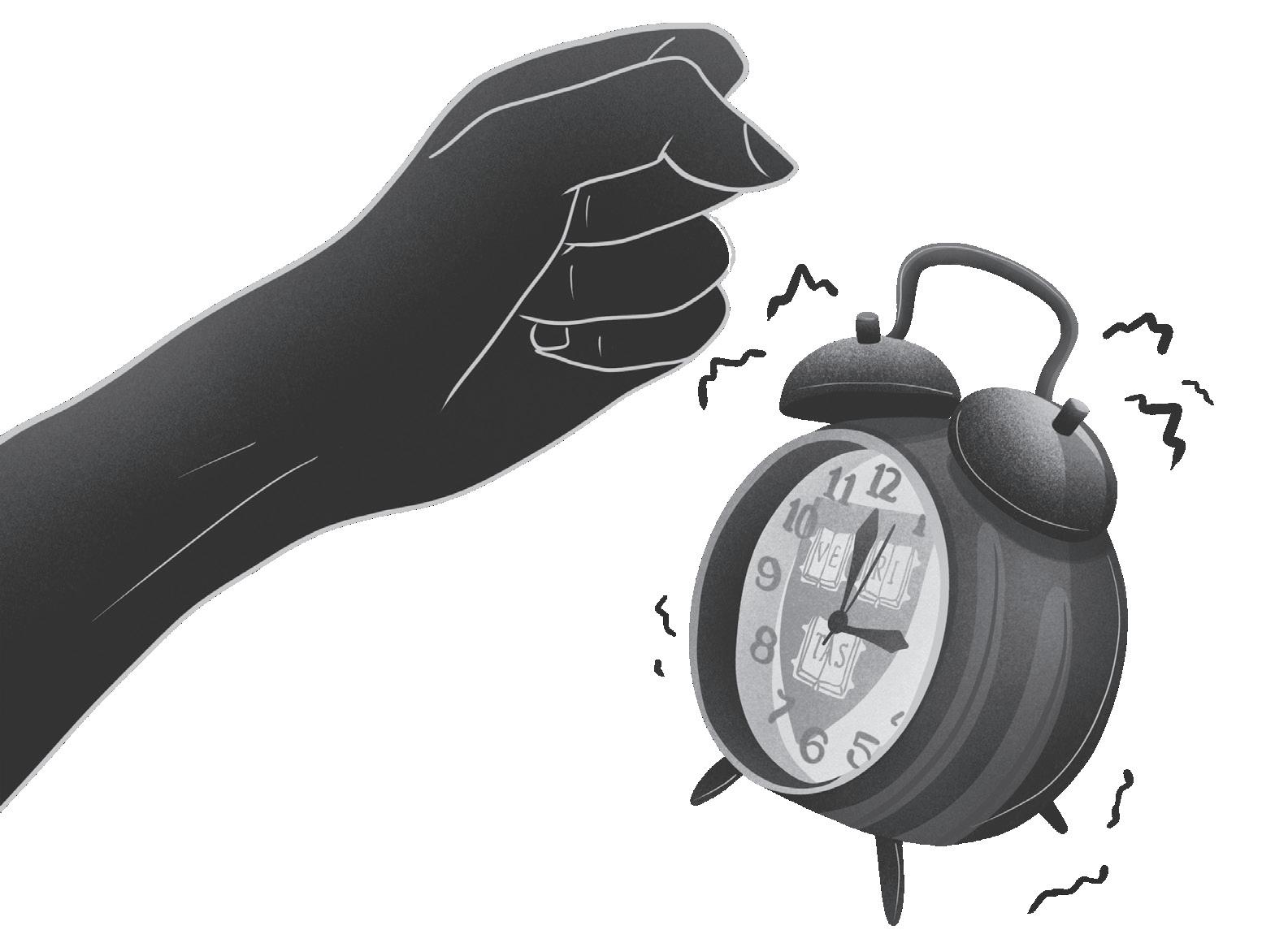
Though I applaud Garber’s three-year extension — not an insignificant amount of time — I wonder why the Harvard Corporation would limit Garber has masterfully steered Harvard through some of its most difficult times. Foltumultuous fall semester of 2023, it was abundantly clear that Harvard needed a steady hand on the tiller. Between the resignation of former President Claudine Gay amid serious accusations of plagiarism, congressional investigations, donor revolt, and a deeply divided student body, Garber had
In the face of these challenges, Garber proved himself to be not only a capable leader, but exactly the leader we needed. He made numerous trips to assuage donor concerns. He made needed clarifications to the rules governing student protest — to the chagrin of protestors, but to the relief of those of us who wish to go to college without the constant national spotlight. He committed Harvard to a policy of institutional neutrality, which should help prevent campus divisions like we saw in the wake of Oct. 7. And he handled a pro-Palestine encampment in the Yard far more deftly than many of our peer institutions and their non-interim leaders.
With these resounding successes, it is puzzling that the Corporation is already planning on — nay, expediting — a post-Garber Harvard.
I fear the Corporation is selling Garber short in pursuit of someone younger, fresher, or flashier. I will be the first to admit that a Garber presidency is not what many would think of as exciting. But after all the excitement of the past year, would some tranquility and time out of the spotlight be such a bad thing for Harvard?
It is far from clear that Harvard needs transformational leadership. If anything, his actions have shown that such a change is not only unwarranted, but unwise. It is the students, faculty, researchers that make this in-
BY JEFFREY S. FLIER
When I received the email from Senior Fellow Penny S. Pritzker ’81 announcing Alan M. Garber ’76 will drop his interim title and serve as Harvard’s 31st president, I was, ironically, finishing up a letter of my own to the Harvard Corporation with my thoughts on the presidential search.
While the letter will forever remain unsent, I can’t help but notice several ways in which the outcome aligns with my own recommendations.
Let’s not mince words: Harvard is in choppy waters, and the Corporation bears ultimate accountability for bringing us to this point and navigating these turbulent times. The past year has been a perfect storm of controversies, leaving our beloved institution’s reputation battered and its community divided. To emerge stronger from the current parlous state, the Corporation must undertake a deep and honest assessment of the nature and causes of its past failures. In the meantime, pending such a necessary review, Harvard needs a steady hand at its helm.
Enter Alan Garber. I am delighted that the Corporation has given him the opportunity to operate as president with full authority. He has the essential characteristics required of any Harvard president — academic distinction in an important discipline, a reputation for integrity, and success in his prior leadership roles, including 12 years as Harvard’s provost. In the few short months of his tenure as interim president, Garber has proven his mettle and leadership skill. He approved a much-needed set of policies on “institutional voice” — directing the University and its leadership to refrain from taking official positions on controversial public policy issues — which could easily
have been consigned to years of delay and internal dispute had a leader not taken the reins and stood behind it, as Alan Garber did.
Garber has also demonstrated his commitment to academic freedom and the related requirements for a vibrant academic culture characterized by open inquiry, intellectual diversity, and constructive disagreement. In his message to the community, he wrote that “excellence is made possible by the free exchange of ideas, open inquiry, creativity, empathy, and constructive dialogue among people with diverse backgrounds and views.”
While these values might seem to be fundamental and unobjectionable at Harvard, they have often been absent,undermined, or weakened without clear and visible support from the Corporation and the president. The importance of these values became glaringly apparent in the wake of Oct. 7. Their absence fueled a campus crisis, in which many faculty feared expressing unpopular views, and discourse among students holding differing perspectives was severely chilled. This atmosphere of intellectual fear and timidity suppressed scholarly advancement and must be addressed headon.
That’s why I was so thrilled to see Garber vociferously endorsing these values, and I am hopeful that his statement reflects the Corporation’s similar views. As Garber said: For Harvard to lead — in both research and pedagogy — we must address these current problematic cultural realities and stand up with vigor and passion for open inquiry and constructive dialogue among people with diverse opinions.
Achieving these goals will require a president with a deep understanding of the issues, dedication to effectively countering expected opposition from various
stitution great — not Massachusetts Hall.
Due in no small part to Garber, Harvard is in a significantly better position to tackle the challenges of the coming decades than it was mere months ago. His steady leadership has quelled the media storm, giving us space to make decisions about the future with less of the pressure of public scrutiny.
Just compare how often Harvard appeared in the headlines during the fall of 2023 with the spring of 2024, even with the encampment. The contrast is quite stark. No doubt there were many circumstances entirely out of Gay’s control as she attempted to steward Harvard, among them the attacks targeting her identity as a Black woman. This does not change the fact, however, that her presidency — one that promised transformative change for Harvard — was an abject failure.
I fail to see any reason to paste an expiration date on a Garber presidency just as it begins. He has proven himself to be exactly what Harvard needs: stability, not reinvention. Garber should be allowed to lead Harvard for as long as he is able to do so effectively, whether that be three years or ten. In other words, Harvard should refrain from forcing change, for a change.
–Henry P. Moss IV ’26, a Crimson Editorial editor, is a History concentrator in Eliot House.
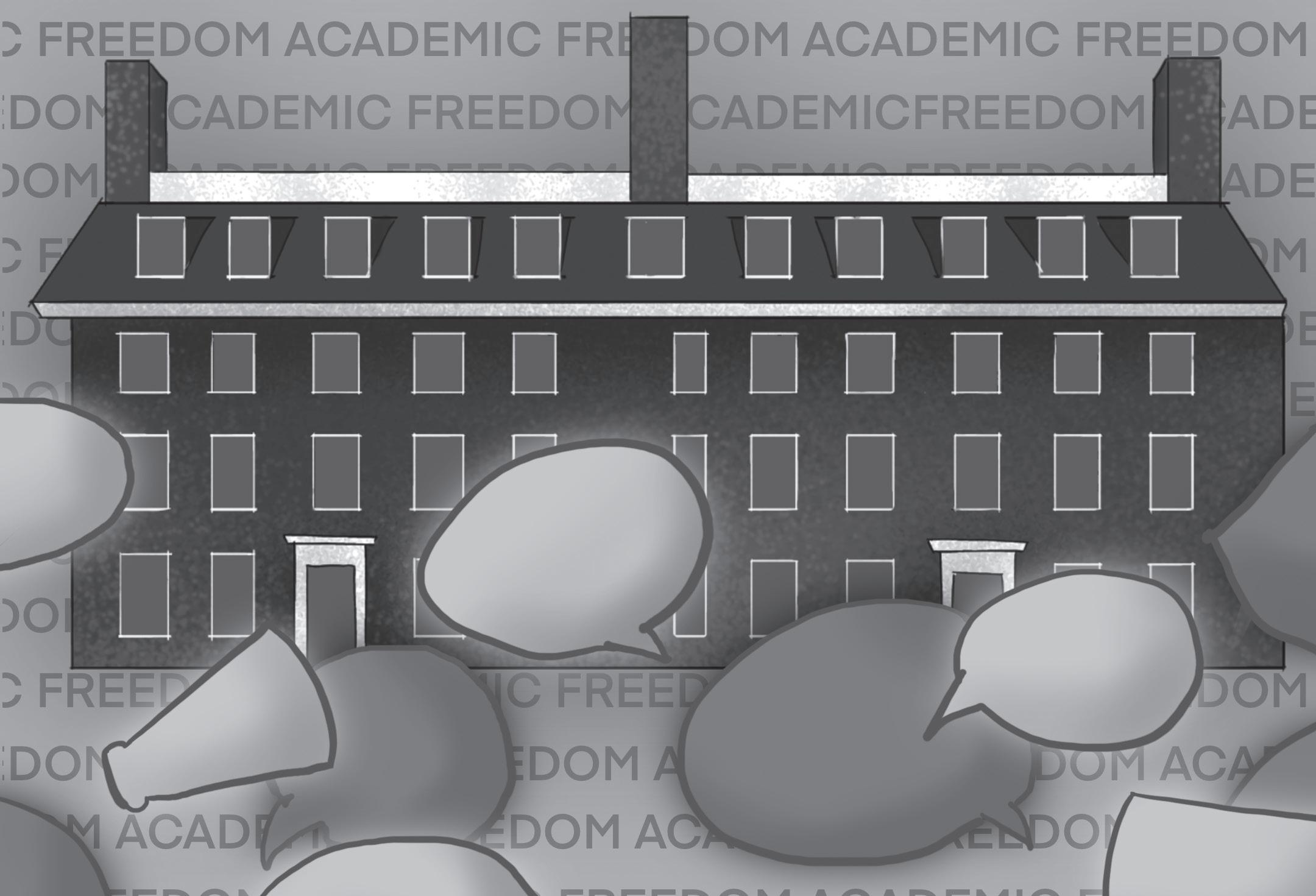
quarters, and willingness to exert leadership. Garber’s skills will soon be tested. New campus protests over the war in Israel and Gaza, demands for politically motivated divestments, congressional investigations into campus antisemitism, and the concerns of many alumni and donors that Harvard has lost its way will invariably continue plaguing his tenure. But by seizing the moment to set Harvard on a path
FROSTY. Harvard’s pro-Palestine student groups are not thrilled about Garber’s official appointment as president.
BY
Alan M. Garber ’76
shouldn’t hold his breath waiting to receive a congratulatory card from Harvard’s pro-Palestine activists after the governing boards permanently installed him as the University’s 31st president on Friday.
Activist groups already had an uneasy relationship with University leadership, but it took a turn for the worse during Garber’s interim presidency last semester as many protesters held Garber responsible for the implementation of policies that they believed sought to discourage campus protests.
Since Garber took office in January, his administration has warned students about the University’s guidelines on protest and dissent, suspended the Harvard Undergraduate Palestine Solidarity Committee, and restricted access to Harvard Yard in anticipation of an encampment.
More recently, Garber’s administration announced new rules that would ban unapproved signage and unauthorized chalking on University property.
Despite the restrictions on where, when, and how students are allowed to protest on campus, Harvard’s leadership has repeatedly maintained that free speech and the right to protest are “integral to the values” of the University.
University spokesperson Jason A. Newton declined to comment for this article.
Harvard Out of Occupied Palestine, an unrecognized coalition of student groups, slammed Garber in a statement.
“Since day 1, Garber has only ever engaged in bad faith with students protesting this genocide, choosing to restrict protest, sanction students, and suspend our organizations instead of listening to members of the Harvard community who are mourning loss and are enraged at the institutions role in this violence,” HOOP wrote.
The group insisted that its activism will continue during the fall semester and that Garber’s appointment will not deter the group from organizing future protests.
“This new development means very little to us — no university administrator and no rights and responsibilities will stop the student intifada and the movement for Palestinian liberation and divestment,” HOOP wrote.
The lowest point in the relationship between Garber and HOOP came during the 20-day pro-Palestine encampment in Harvard Yard as protesters harshly criticized Garber as an unusually oppressive University leader to-


ward campus activism.
Rosie P. Couture ’26, an organizer with the Harvard Feminist Coalition, said that “under Garber’s leadership, students organizing for Harvard’s divestment from the occupation of Palestine and the ongoing genocide in Gaza were harassed, unprotected, unjustly punished, and largely ignored.”
Members of the encampment marched to Garber’s private residence on two separate occasions in May, where they chanted “Alan Garbage.” Members of HOOP also created a poster depicting Garber as a devil.
Garber, who is Jewish, was portrayed in the poster with horns and a tail. HOOP later took down the poster after affiliates criticized the drawing as antisemitic.
Pro-Palestine protesters have also repeatedly accused Garber of reneging on a deal to end the 20-day encampment in May after dozens of undergraduate students were suspended or placed on probation for their involvement in the
protest.
In fact, Garber had only agreed to reinstate students from involuntary leaves of absences and expedite disciplinary cases against the student protesters.
The Administrative Board — which is responsible for the application and enforcement of Harvard College policies — barred 13 seniors from graduating on the day before Commencement over pending disciplinary charges, infuriating students and faculty members.
The controversy, which sparked a walkout and faculty rebellion against the Ad Board, ended when the Ad Board reduced probations and reversed the suspensions earlier this summer. At least 11 of the suspended seniors have since received their Harvard diplomas.
Hossameldin “Hossam Nasr” Mabed ’21, a member of Harvard Alumni for Palestine, wrote in a statement that the events of last semester give “a clear indication
of the direction Harvard will seek under Garber’s presidency: the same policy of repression and intimidation.”
“However, while Garber and the Corporation may continue to try to suppress our movement, we know that our movement will only grow stronger, as the more they try to silence us, the louder our voice gets,” Mabed added.
“Whether under Garber or any other president, we will continue to hold our alma mater accountable for its support and funding for apartheid and genocide.”
While several activists agreed that their protest efforts would continue regardless of who holds the presidency, some still said they were unhopeful that significant progress could occur under a Garber presidency.
“Whatever,” wrote Syd D. Sanders ’24 in response to a request for comment about Garber’s appointment. Sanders was part of the group of seniors in May who were prevented from graduating over
their involvement in the encampment.
Noa Sepharia, a recent graduate of Harvard Divinity School, said that her immediate reaction to the announcement was “dread for the Harvard community.”
“He was viciously anti-Palestinian and his actions favored external political influences over the well being of Harvard’s community,” Sepharia wrote. “He was a hindrance to important dialogue that needs to happen on campus, namely why so much of our endowment is invested in weapons of death instead of its students.” Still, some activists hoped that time — and job security — could change Garber’s approach.
“Garber’s legacy so far is not one of safety, justice, or freedom for students,” Couture wrote. “But he has three years to redefine his legacy.”
michelle.amponsah@thecrimson.com
jo.lemann@thecrimson.com azusa.lippit@thecrimson.com
derstand their experience.
When students received notice that Alan M. Garber ’76 was confirmed as Harvard’s 31st president Friday afternoon, many were far from shocked.
“I was not surprised at all. I saw this coming from a mile away,” Gustavo Merino Martinez ’27 said. Garber’s elevation from interim to permanent president — at least through 2027 — seemed like a safe, even predictable choice from the Harvard Corporation. In his first semester in Massachusetts Hall, Garber proved himself able to steer the University away from the national controversies
that engulfed campus following the Oct. 7 attack on Israel.
“Especially considering recent political conflict and turmoil, I think that Garber is exactly the president that Harvard has been looking for,” Merino Martinez added.
Still, as Garber continues in the role on a non-interim basis, he will have to contend with a
student body whose sentiments range from admiration to apathy to plain disappointment, especially over his handling of student protests and the 20-day pro-Palestine encampment in Harvard Yard.
“I feel like Harvard is more focused on mitigating negative attention from the outside or certain media outlets or certain

donors — groups like that — rather than what its students wanted,” Stella Lei ’26 said.
“I was disappointed, but not surprised,” she said.
Irati Egorho Diez ’26 said she felt indifferent about the announcement, adding that it seemed like nothing more than business as usual for the University.
“To be totally frank, the difference between Garber being president and interim president is not that consequential to me,” she wrote in an email. “I would guess many students feel that way.”
Several students said Garber has a long way to go to rebuild trust among affiliates following the end of the encampment in May. Garber was accused of reneging on a deal to end the encampment after dozens of undergraduate and graduate students were suspended or placed on probation for participating in the demonstration.
Though the disciplinary actions prevented 13 seniors from graduating at Harvard’s Commencement ceremonies, 11 wound up receiving their degrees after the Harvard College Administrative Board reversed the suspensions and reduced probations last month.
Still, the repeated flip-flopping under Garber’s leadership left some students with a bitter taste in their mouths.
“I think overall, Garber has a lot of work to do in terms of building up his reputation with the students, because at the moment, there’s not a favorable image of him on campus,” Merino Martinez said.
Other students said that Garber — the first Harvard College alum to become the University’s president since Nathan M. Pusey, class of 1928 — is well positioned to connect with students and un-
“Harvard has a beautiful and amazing undergraduate experience, and it’s really exciting to me personally to see someone who’s had the Harvard undergraduate experience and gone on to lead the entire university,” said Institute of Politics President Pratyush Mallick ’25.
“It’s definitely a benefit, and especially in a time when we’re learning about student experiences and they’re at the center point of campus tension,” he added.
“Understanding the undergraduate experience and tailoring towards it is an amazing initiative that I hope President Garber focuses on.”
Eunice S. Chon ’26, who took a freshman seminar taught by Garber in 2022, expressed admiration for Garber’s academic abilities and attention to detail.
“He’s the smartest person I’ve met here, and that’s not an understatement because you meet all kinds of really notorious intellectuals here. He is someone undoubtedly who knows everything. Any particular perspective or side, he has thought about carefully,” Chon said.
“He might not agree with you, or might say some things that make you uncomfortable, but he is definitely someone who is incredibly meticulous, and that comes across when you talk to him,” she added.
Mallick said he thinks Garber must remain steadfast to his values in order to serve as a successful leader for the next three years.
“I hope that he’s keeping those core principles that he shared at the beginning of the semester through his term as president,” Mallick said.
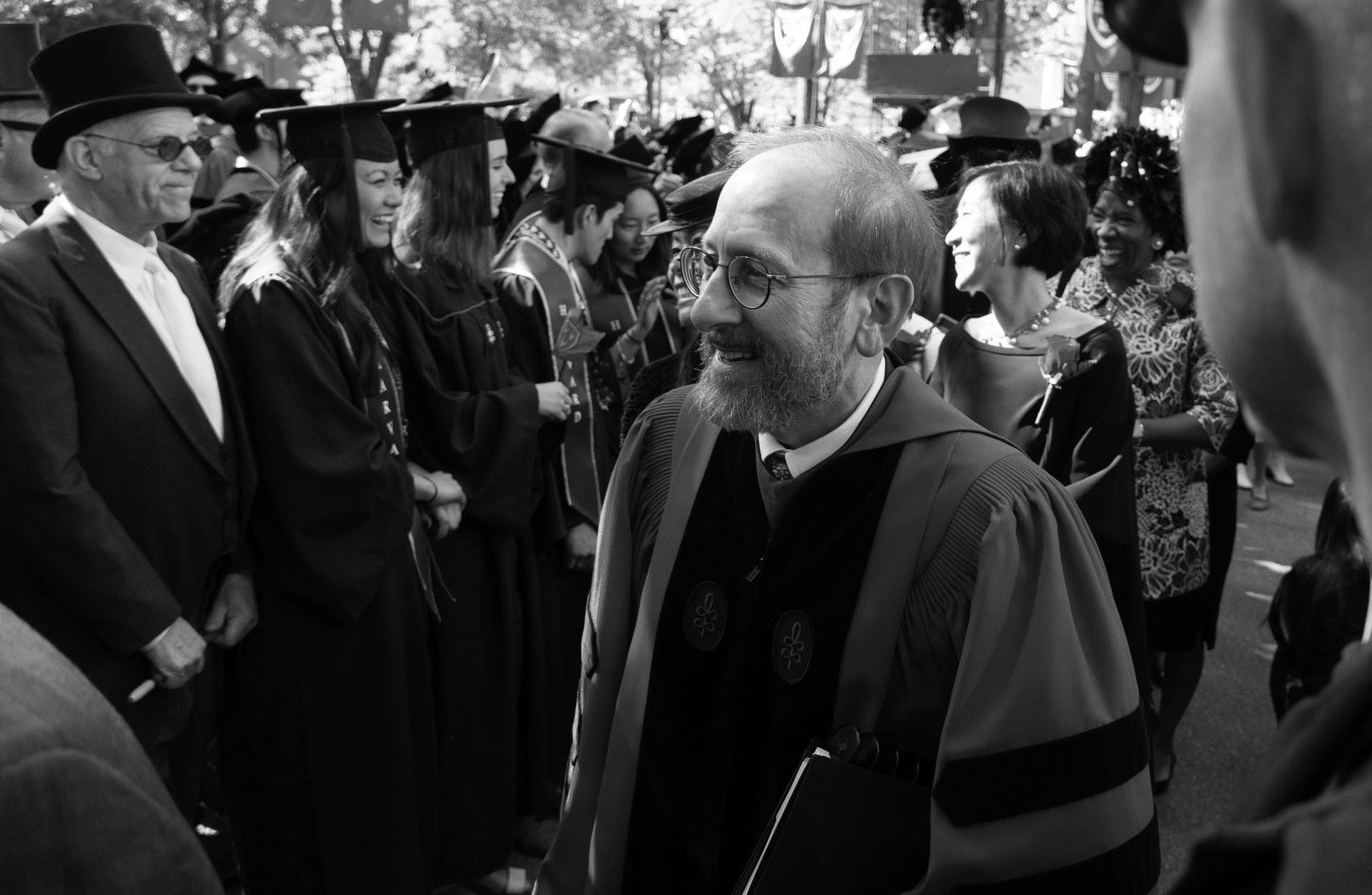
‘IMPECCABLE.’ Higher education experts say Alan Garber’s academic record may save him from the criticism that befell Gay.
BY WILLIAM C.
Alan M. Garber ’76 comes into the Harvard presidency armed with a stacked resume: three degrees from Harvard and one from Stanford, time on both faculties, and more than a decade serving as Harvard’s second-highest administrator.
It might just be enough to spare him from the condemnation that befell former Harvard President Claudine Gay, whose last weeks in the presidency were marked by scrutiny of her academic scholarship and allegations of plagiarism.
Before being thrown into a chaotic interim presidency, Garber was the longest-serving provost in Harvard’s history, serving as the University’s chief academic officer for 12 years.
Alongside extensive administrative experience, Garber boasts a remarkable academic record: He is an acclaimed physician, a renowned professor in both economics and medicine, and a prolific researcher cited by thousands.
“His academic credentials are impeccable,” said Thomas D.
Parker ’64, a senior associate at the Institute for Higher Education Policy.
‘Even-Handed, Balanced, Unflappable’
With his expertise in medicine, Garber brings a long-missing academic background back to Massachusetts Hall. He is the first University president to have an academic background in the sciences since James B. Conant, a former Crimson editor and Harvard Chemistry professor who helmed the University from 1933 to 1953.
As an undergraduate student at Harvard College, Garber studied economics, despite initially being interested in concentrating in biology. He remained in Cambridge for nearly a decade, receiving both masters and doctoral degrees in economics from Harvard.
While pursuing his Ph.D. in economics, Garber enrolled in medical school at Stanford University. Since then, he has hopped from coast to coast, completing his medical training at Brigham and Women’s Hospital before being appointed to professorships in economics, medicine, and health policy at Stanford.
“I would describe him as a social scientist — an elite social scientist — and an excellent clinician all wrapped up into one,” said Dana P. Goldman, a professor of Health Economics at the University of Southern Califor-
nia, for whom Garber was a thesis advisor and mentor.
In total, Garber has authored over 150 academic papers and garnered almost 20,000 citations. The breadth of his scholarship dwarfs that of Gay, who published fewer than a dozen articles since completing her dissertation.
Garber began his academic career mainly focused on researching heart disease and antibiotic resistance. But in the late ’90s, his scholarship shifted towards blending his health care expertise with his economics background.
“He was considered by many people as the best health economist of his generation,” Stanford professor and Garber’s former colleague Douglas K. Owens said.
Garber is considered a pioneer in cost-effectiveness analysis, specifically with regards to how the assessment of medical technology can impact health care spending.
While in the past physicians would continue providing care until there was no more benefit — “do no harm was kind of where we stopped,” Goldman said — Garber’s research established that there should be limitations.
“What Alan’s research has been about is saying there are costs to doing that. And we don’t have unlimited resources,” Goldman added.
While Garber was at Stanford, he was “often turned to by university leadership” because

“he cared about institutions,” according to John W. Rowe, a professor of health policy at Columbia who worked closely with Garber when they were at Stanford.
Rowe added that when Garber served on search committees for faculty at Stanford, he was known to be skilled at evaluating potential hires, an asset he brings along to the Harvard presidency.
“He’s got terrific judgment about people. He really can assess individuals and identify talent,” said Rowe.
Richard P. Chait, a higher education expert and professor emeritus at the Harvard Graduate School of Education, said that Garber’s experience in higher education at and outside of Harvard equips him to lead.
“Over the years, Harvard has been well served by presidents who maybe have not had their whole careers at Harvard, but have that first hand experience with the institution,” Chait said.
“He has a deserved reputation as an even-handed, balanced, unflappable individual,” he said.
In 2011, Garber returned to Cambridge after almost 25 years at Stanford to become Harvard’s fourth provost, as well as holding professorships at Harvard’s Medical School, Kennedy School, School of Public Health, and in the Faculty of Arts and Sciences.
Crossing the Aisle Garber’s background as both a scientific researcher and a Harvard alum uniquely positions him to understand the University’s culture.
“His most impressive credential is that he’s a summa cum laude graduate of Harvard College,” Parker said.
Roy Y. Chan, a professor at Lee University who studies higher education, echoed Parker’s sentiment, saying that Garber’s student experience allows him to “understand the culture” and “challenges that are facing the institution.”
“Because he did his bachelor’s, master’s, and doctoral degree at Harvard, I think he does have not just political leverage but also some experience understanding students,” Chan added.
Rowe said that at Stanford, Garber “was exceptional at fostering young scholars” and “really enjoys nurturing young people.”
Garber’s background in science could allow him to connect with an even greater part of Harvard’s campus than the traditional social science background of many previous Harvard presidents.
Increasingly, university presidents hail from a STEM field, according to Chan.
“They hire them because one, they not only produce good research, but two, they have proven themselves academically to lead the institution to a prestigious level in terms of getting millions of dollars of research funding from philanthropic foundations and corporations,” he added.
Reporting in publications focused on higher education suggests that university presidents with a background in the sciences experiment more with their leadership.
Harvard’s last president from the sciences, Conant, was regarded as transformative for promoting a more diversified student body, allowing women more opportunities for education, and adopting standardized testing for admission.
Since assuming the presidency, Garber has launched inaugural task forces to address antisemitism and Islamophobia and adopted a policy of institutional restraint .
Garber’s background in medicine may also allow him to better interface with the Longwood campus than past presidents.
“He’s now president of a university that has a vast medical school with 8,000 faculty, and all these huge hospitals, and he understands the practice of medicine,” said Rowe. “That is a noteworthy characteristic.”
Science has also become a kind of lingua franca in academia, according to a number of HMS professors who voiced support for a president with a STEM background.
In March, HMS Dean George Q. Daley ’82 endorsed Garber for a similar reason — that the prominence of technology makes scientific expertise increasingly relevant.
Garber’s ability to cross the aisles of academic disciplines within the environment of Harvard is an asset for his leadership.
“He could interact in all those communities and with all those people,” Goldman said. “And you’d have lawyers and economists and physicians and business people and ethicists all in
the same room talking about the same issues.”
“It’s very unusual to have an individual with this kind of multi-dimensional breadth,” Rowe said. “It’s going to serve us very well.”
A Harder Target Garber’s impressive academic background may come under less criticism than Gay experienced during her tenure, according to several experts on higher education.
“This is a very difficult time to be a university president. There seems as if there will always be some segment of the population, some constituency that’s disgruntled about some issue,” said Chait.
Having served as interim president, Garber has already faced intense scrutiny from the public and Congress — and has emerged largely unscathed.
“The fact that he’s been there for such a long time as provost means that he’s a harder target,” Parker said.
“People like Virginia Foxx, if they had been able to go after him, they would have already,” he added, referring to the chairwoman of the House Committee on Education and the Workforce that has been investigating antisemitism on campus.
Garber’s personal background may also diminish the risk of attacks on his academic record. Over the past year, conservative activists such as Christopher F. Rufo have attacked Harvard’s diversity, equity, and inclusion efforts and targeted plagiarism accusations against Black female scholars at Harvard.
While Chan acknowledged that Garber and Gay’s very different backgrounds makes comparing them difficult, he did say it was “possible that he may not receive as much criticism as Gay would.”
“Of course, we know that — you know — one is a woman, one is a man. One is white, one is Black,” he added.
Chan added that, given the explosive controversy surrounding the alleged plagiarism in Gay’s work, Garber and his academic publications will have been more scrutinized by Harvard to avoid a repeat debacle.
“The hope is that he’s pretty bulletproof,” said Parker.
REVERSAL. Amid donor exodus, Len Blavatnik and other alumni voiced approval for Garber’s appointment.
BY KYLE BAEK AND MATAN H. JOSEPHY CRIMSON STAFF WRITERS
Harvard President Alan M. Garber ’76 will serve as the University’s fundraiser-in-chief for the next three years, after the Harvard Corporation stripped his interim tag on Friday.
The appointment demonstrates the governing boards’ faith that Garber can successfully continue his efforts to mend alumni relations and convince disillusioned donors that Harvard’s mission is still worth supporting. And it is already working.
Billionaire philanthropist
Leonard V. Blavatnik, one of the most prominent Harvard donors to pause donations to the University over campus antisemitism, welcomed the Corporation’s decision in a statement to The Crimson on Saturday.
“I support Alan’s appointment,” Blavatnik said. “He has demonstrated a deep knowledge and love of Harvard. Just as important, he understands the serious and immediate need to address antisemitism on campus and has expressed his commitment to do whatever is necessary to change things for the better.”
Garber must now work to win back the support of Blavatnik, longtime Harvard donor Kenneth C. Griffin ’89, and other prominent philanthropists who have halted future contributions to Harvard until its leadership can demonstrate that it is committed to combatting antisemitism.
“I think this is a very important and deserved vote of confidence in Alan, in the work that he’s done over seven months,” said Paul A. Buttenwieser ’60, a longtime Harvard donor.
“He deserves it,” Buttenwieser added. Earlier in his tenure at Har-
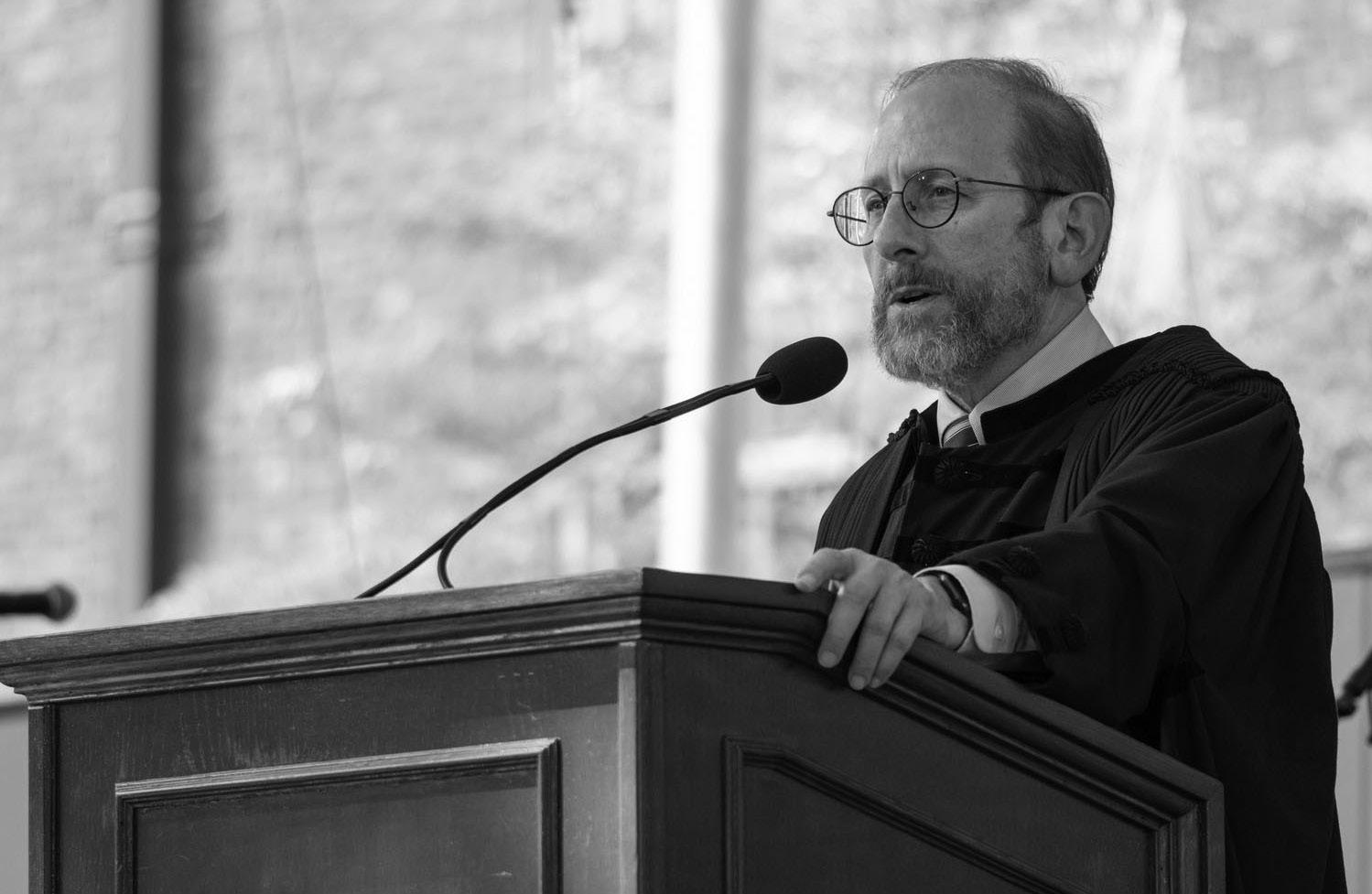
vard, Garber participated in one of the greatest fundraising feats in the University’s history as he assisted former Harvard President Drew Gilpin Faust with a successful $9.6 billion capital campaign.
But his interim presidency last semester also offered a glimpse of Harvard’s most significant fundraising struggles in modern history as some of the University’s biggest donors publicly cut ties with Harvard over former Harvard President Claudine Gay’s response to campus antisemitism.
Garber moved swiftly in an effort to mend ties with Harvard affiliates outside the campus bubble, traveling to London, Miami,
and Washington during his first semester in office. The visit to London was particularly notable given the United Kingdom has long topped the list of Harvard foreign funding sources.
The decision to permanently appoint Garber as president will give him even more latitude to court back longtime supporters and demonstrate that Harvard’s top leadership has successfully stabilized the University.
Roni Brunn ’96, the Harvard Jewish Alumni Alliance’s vice president for media relations, said that the group is “really glad that Harvard has direction going forward.”
“Harvard desperately has
been in need of firm leadership,” Brunn said. “We’re really happy that the Corporation is both empowering President Garber and taking its time to pick the next president.”
Peter L. Malkin ’55, another prominent University donor and the namesake of Harvard’s Malkin Athletic Center, also praised the decision to remove the interim tag.
“I congratulate Harvard on its wise decision, most well earned and deserved by President Garber,” Malkin wrote.
Still, some alumni voiced skepticism about the significance of Garber’s selection.
Monica M. Clark ’06, presi-
dent of the Harvard Black Alumni Society, questioned whether the decision to keep Garber on until June 2027 was any different from simply extending his interim appointment. Until his announcement, Clark added, she didn’t expect Garber to remain in his role for so long.
“My initial reaction,” Clark said, “ is three years feels like kind of a long time.”
But overall, Harvard alumni groups appeared to be in agreement that Garber’s appointment was a positive development for the University. Harvard Latino Alumni Alliance praised Garber’s “steadfast dedication to fostering an inclu-
sive and diverse academic community” in a written statement.
“Dr. Garber’s presidency promises to continue building on these foundations,” the HLAA wrote. “His visionary approach is not only crucial for the University’s advancement but also serves as an inspiring model for educational institutions worldwide.” The Harvard Christian Alumni Society similarly backed Garber. “He has the steady hand, clear eye, and level head that the University needs during this time of transition - and turmoil,” the HCAS wrote.
kyle.baek@thecrimson.com
matan.josephy@thecrimson.com
BY WILLIAM C. MAO
One day before Alan M. Garber ’76 officially became Harvard’s 31st president, he was in the nation’s capital to meet with members of Congress.
The trip, which marked Garber’s third visit to Washington since he became the University’s interim president on Jan. 2, featured meetings with Sen. Elizabeth Warren (D-Mass.) and Rep. Katherine M. Clark (D-Mass.).
It also underscored the importance of Garber’s role as president to mend relationships between Harvard and lawmakers. The relationship between Cambridge and Washington has been fraught for several years, but it took a sharp turn for the worse after former Harvard President Claudine Gay’s disastrous testimony about campus antisemitism. Gay’s testimony, which contributed to her resignation less than one month later, prompted the House Committee on Education and the Workforce to open a congressional investigation into
Harvard. And some lawmakers on both sides of the aisle indicated that the University should lose its federal funding if it fails to address antisemitism on its campus.
There are no signs that the pressure on Harvard will subside anytime soon.
Rep. Ronny L. Jackson (R-Texas) — who signed a letter in July alongside 26 other House Republicans that slammed the preliminary recommendations of Garber’s antisemitism task force — wrote in a statement on Sunday that Garber should prioritize “addressing and prohibiting the ram-
pant antisemitism that was on full display last year.”
“Congress will continue doing everything we can to hold these institutions accountable if they fail to protect Jewish students from harm,” Jackson added.
University spokesperson Jason A. Newton has repeatedly stated that “Harvard has and will continue to be unequivocal — in our words and actions — that antisemitism is not and will not be tolerated on our campus.”
Harvard has made more than 20 submissions to Congress since the launch of the investigation, total-

ling more than 47,000 documents. Garber, who served for 12 years as Harvard’s provost, is not unfamiliar with the University’s strained relationship with Washington. He advised former Harvard President Lawrence S. Bacow when he teamed up with MIT to sue the Trump administration over a policy that would have barred international students from attending U.S. colleges and universities offering online-only courses during the Covid-19 pandemic. And Garber sat directly behind Gay during her lengthy testimony in December. Now comfortably in his role until June 2027, Garber will be forced to put on a brave face and walk a difficult line between serving as higher education’s chief spokesperson and keeping Harvard out of the national spotlight — a task which may become all the more challenging under a potential second Trump presidency. Despite Harvard’s efforts to cooperate with the congressional investigation, Garber has still received criticism for not doing more to combat antisemitism on campus.
In February, Garber and two other senior Harvard officials were subpoenaed by Congress, the first time a House committee had ever issued subpoenas to a university. And when Garber’s task forces on antisemitism and anti-Muslim and anti-Arab bias — his biggest initiative to combat hate at Harvard thus far — released preliminary recommendations to the public, House Republicans blasted the suggestions as “weaker, less detailed, and less comprehensive” than those presented by Gay’s antisemitism advisory group in fall 2023.
Still, Garber has so far dodged the levels of personal criticism from members of Congress — especially Harvard’s biggest critic in Congress, Rep. Elise Stefanik —
that Gay endured. At an Institute of Politics event just two miles from Capitol Hill, Garber set a hopeful tone for Harvard’s future with political leaders, telling attendees that the University has the “extraordinary capacity to help address extraordinary challenges by connecting leaders with the resources necessary to deliberate, decide, and act.”
“The challenges we face have never been greater and, unfortunately, the challenges we face are growing in range, severity, and scope with each passing day,” Garber added.
(The event also featured a brief disruption from an activist affiliated with People for the Ethical Treatment of Animals — an animal rights group that has been protesting Garber at various events around the globe.)
But Garber’s appointment as the University’s permanent president could open the door to a new wave of criticism against him. Rep. Virginia Foxx (R-N.C.), chair of the House Committee on Education and the Workforce, notably left open the possibility of calling Garber to testify before Congress — an invitation Garber has said he would gladly comply with.
If he is called before Congress as a non-interim president to detail a long-term vision for combating antisemitism at Harvard, it may be the biggest test of whether he can avoid Gay’s fate and silence the University’s critics — or at least withstand their anger.
“The president of Harvard, even the interim president, does need to speak out about issues of general interest in higher ed,” Garber said in an April interview.
“I think it’s very important to defend the principles that our universities stand behind,” he added.
MONEY. As president, Garber will be asked by local politicans to pay up for the PILOT program.
BY
TRAPANICK CRIMSON STAFF WRITERS
As newly appointed Harvard President Alan M. Garber ’76 takes the reins of the University full time, he will face one simple demand from local politicians and activists: pay up.
Though Garber’s primary responsibilities involve dealing with donors, campus issues, and Harvard’s relationship with national politicians, he will also be tasked with managing relations with the University’s neighbors in Cambridge and Boston. That includes negotiating what Harvard owes to both cities as a private, wealthy institution occupying an enormous amount of their land — much of which is exempt from property taxes.
As Garber enters his threeyear tenure, he will face rising pressure as he works with his fellow Harvard alumni Boston Mayor Michelle Wu ’07 and Cambridge City Manager Yi-An Huang ’05 to respond to calls for the University to increase its contributions to both cities.
Harvard makes voluntary payments to Cambridge and Boston through the cities’ Payment in Lieu of Taxes — or PILOT — programs, which ask tax-exempt nonprofit institutions with large endowments to pay a fraction of what they would pay in property taxes to supplement the city’s budget. Despite owning nearly onethird of Boston’s Allston neighborhood as well as property in the Longwood area, Harvard has consistently underpaid the monetary contribution requested under the city’s current PILOT program.
Now, Boston officials are reevaluating the city’s PILOT program in the face of a budget crunch, engaging with Boston nonprofits including Harvard to restructure the program in the hope of boosting cash payments.
A new PILOT program could lead to tens of millions of dollars in additional payments to the city.
One sticking point in the reform efforts may be a provision of PILOT that allows nonprofits to avoid directly paying up to half the amount the city requests
by counting the value of benefits they provide to the city instead. In the eyes of some universities, the 50 percent cap does not reflect the full extent of the benefits they provide, while some activists say the provision allows nonprofits such as Harvard to dodge making direct monetary contributions.
Enid Eckstein, co-chair of the PILOT Action Group, which is advocating for city nonprofits to up their PILOT contributions, said she hoped the change in leadership would spur Harvard to “rethink what their obligations and commitments are” in a city where it owns hundreds of acres of land.
Under Garber’s leadership, Harvard is also due to renegotiate its PILOT agreement with Cambridge for the first time in 21 years. Though the contract was set to expire in June, the city extended the terms for an additional year and is beginning public discussions regarding the contract’s renewal.
Councilor and former Mayor Sumbul Siddiqui said she is optimistic that the negotiation process, which she anticipates will be finalized by the end of the year, will be successful.
“As someone who’s worked pretty closely with Harvard the last seven years, and particularly in my four years as mayor, kind of any priority I discussed with them, there was a willingness to always help,” Siddiqui said.
However, the city has long hoped Harvard’s contributions would exceed monetary payments. In 2019, a wide-ranging city report identified “local academic institutions” as a key player in addressing Cambridge’s pressing affordable housing needs.
Councilor Paul F. Toner, who will be leading a public meeting to discuss the PILOT negotiations on Monday, wrote that he hoped Harvard would provide additional “housing stock for graduate students,” financial support for “Cambridge students seeking 2-4 year degrees,” and assist in public transportation efforts to reduce traffic in the city.
“I would be happy if the City Manager is able to make adjustments/increases in straight payments to the city,” Toner wrote in a statement, “but I think targeted support in these areas would have more direct impact on the lives of Cantabridgians in terms of providing economic opportunities and quality of life issues.”
Huang declined to comment on the renewal, citing “the na-
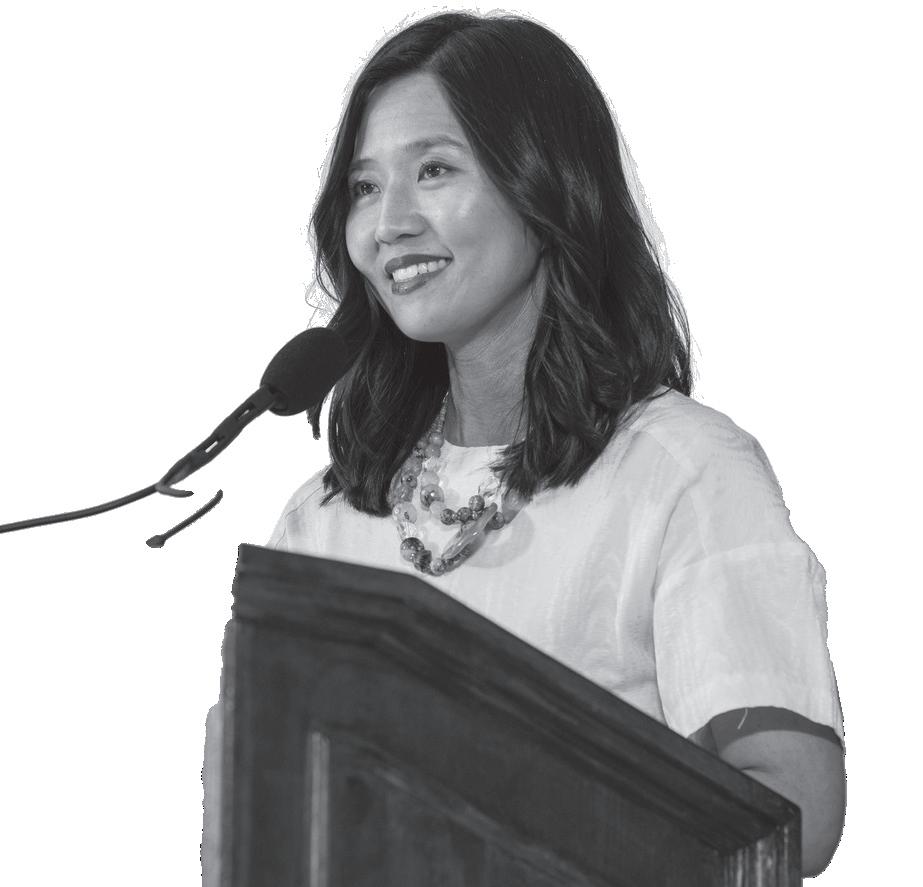
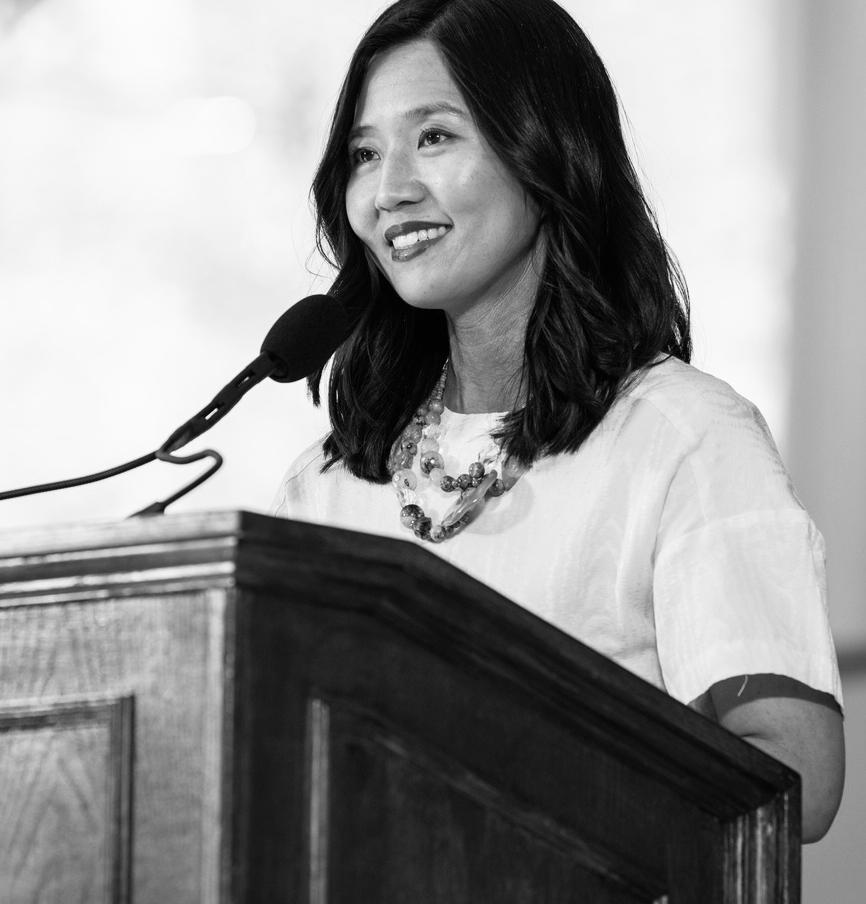
ture of the ongoing negotiations.”
Wu could not be reached for comment.
Harvard spokesperson Amy Kamosa declined to answer whether the University would continue increasing its contributions to either city, instead referring The Crimson to an April statement noting that Harvard makes “direct contributions” and offers initiatives to “better both cities.”
Outside of PILOT, Harvard will have to detail a new set of community benefits for Allston, where Harvard has expanded enormously over the last several
decades.
The University is currently in the process of negotiating a new Institutional Master Plan with the city, a planning document that summarizes its development intentions for University land over the coming decade. As part of the process, Harvard will need to commit to specific community benefits for the neighborhood, possibly totaling tens of millions of dollars.
In Harvard’s last Allston IMP, filed in 2013, the University committed to benefits totaling $43 million, including improvements at a local elementary school, a
homeownership support program, and maintenance of neighborhood parks.
Now with Garber fully at the helm, Harvard will again have to determine the scope and nature of its benefits to Allston in coordination with both neighborhood representatives and the city’s planning department.
Garber, himself a scientist, will also add his own vision to the University’s evolving program for Lower Allston more broadly, an area of the neighborhood where Harvard is privately developing over a dozen acres of land as it attempts to create a
new, regional hub for the life science industry.
Boston City Councilor Elizabeth A. “Liz” Breadon, whose district covers Allston, wrote in a statement congratulating Garber that he should be an “engaged leader and community partner” throughout the IMP process and PILOT renegotiation. “Our office looks forward to working collaboratively with President Alan Garber in the coming months,” she wrote.
avani.rai@thecrimson.com laurel.shugart@thecrimson.com jack.trapanick@thecrimson.com
BY ELYSE C. GONCALVES AND S. MAC HEALEY CRIMSON STAFF WRITERS
A common strategy has emerged as several elite American universities contend with sudden presidential vacancies: appoint interim leaders — and keep them.
The Harvard Corporation’s decision on Friday to permanently appoint Alan M. Garber ’76 as the school’s 31st president was historic for Harvard, but it also put the University in line with many peer schools that recently made similar moves. Top universities across the country have seen rapid turnover among their top officials in recent years: six Ivy League universities, MIT, and Stanford have all replaced their presidents since 2022. Many of them were forced to replace departing leaders in the midst of a historically tense climate at college campuses, as elite universities across the country have been roiled by protests over Hamas’s Oct. 7 attack and Israel’s war in Gaza. But while Yale and Stanford managed to begin and end their presidential searches within the last year, other schools — such as Cornell, the University of Pennsylvania, and now Harvard — have elected to extend the tenure of their interim presidents instead.
Former Harvard President Claudine Gay and former UPenn
President Liz Magill suddenly resigned just weeks after their disastrous congressional testimony in
December, forcing top officials at both universities to scramble to appoint interim leaders.
The Harvard Corporation asked Garber, the longtime University provost, to step into the role. Meanwhile, Penn’s Board of Trustees selected the dean of their medical school, J. Larry Jameson. As the war in the Middle East drags on and tensions linger on college campuses, Garber and Jameson will both remain in their roles longer than the “interim” tags initially suggested: Garber will serve as the University’s 31st president through the 2026-2027 academic year, while Jameson will helm UPenn through the 2025-2026 academic year, with still no timeline in place to find his successor.
pus controversies as roadblocks in any current presidential search process.
“This would not be an ideal time to try and recruit a new president,” Bacow said.
Former Harvard President Lawrence S. Bacow said he was unsurprised that universities have chosen to extend interim presidencies on a fixed timeline, citing recent cam-
Bacow added that the tactic of appointing interim presidents with lengthy tenures — or removing the tag altogether — is not just happening at Penn or Harvard.
In May, after Cornell University president Martha E. Pollack an-

nounced her retirement — which Pollack wrote was independent of political events — Cornell’s Board of Trustees announced that the university’s provost, Michael I. Koltikoff, would serve as interim president through 2026. A presidential search committee will be formed six to nine months before his scheduled departure.
But while Garber is the only one of the three to have shedded the “interim” label, all have sunset dates for their presidencies.
At both Yale and Stanford, presidential searches succeeded without having to appoint lengthy interim leaders. Although the departures of both institutions’ presidents were not related to the fallout of Hamas’ Oct. 7 attack, the universities still conducted and concluded their searches in a charged political climate.
After Yale president Peter Salovey announced in August 2023 that he would be retiring at the end of the 2023-2024 academic year, his successor was selected by May 2024.
At Stanford, the search similarly only lasted seven months. Following the July 2023 resignation of Marc Tessier-Lavigne over allegations of research misconduct, the university appointed Richard Saller as an interim. Saller would drop the interim label when he was formally installed in a private ceremony in October even as Stanford launched a search for his successor. By May, Stanford Graduate School of Business Dean Jonathan D. Levin was appointed as the university’s next president.
Still, Scott L. Bok — a former chair of the Penn Board of Trustees who resigned shortly after Magill resigned as president — wrote in an emailed statement that removing Garber’s “interim” title differentiated him from the other two presidents in name only. He added that Jameson “will not be thought of as a typical interim president.”
“He will likely be thought of very similarly to the way Garber is, as an internal candidate who stepped into the breach for an extended period of challenging times,” Bok wrote. The choice to select internal university leaders as interim presidents is also a convenient solution for university boards who would otherwise face the dual challenges of limited enthusiasm for presidency positions and peer schools conducting their own searches at the same time.
“Attracting the best candidates would be more difficult in the current environment than it has been historically,” Bok wrote. “So no surprise that universities aren’t rushing into search processes.” Richard Chait, a professor at Harvard’s Graduate School of Education, agreed, saying that for Garber, his three-year term is “perfect to reposition the university and a way to — frankly — time when the college presidency becomes a more attractive proposition for more people.”
“Right now it’s not,” Chait added.
Harvard anthropology professor John Comaroff retired without emeritus status on June 30.
Harvard professor John L. Comaroff retired without emeritus status on June 30, an abrupt ending for the once-respected anthropologist whose career unraveled after four years of battling sexual harassment allegations and calls for his termination. Comaroff, who held dual appointments in the Anthropology and African and African American Studies departments, has not been granted emeritus status — an unusual delay in conferring an honor that most tenured Fac-
ulty of Arts and Sciences professors receive as a formality upon retirement.
Ruth K. O’Meara Costello ’02, a lawyer for Comaroff, wrote in an email that the “understanding is that his emeritus status has not been determined” and that the decision lies with FAS Dean Hopi E. Hoekstra.
But Harvard’s delay in conferring the emeritus status may not be a delay at all. Government pro-
fessor Jorge I. Domínguez and Anthropology professor Gary Urton — two other professors who faced allegations of sexual harassment — were stripped of their emeritus status by former FAS Dean Claudine Gay. Comaroff, 79, wrote in a post on his website that the allegations against him and their aftermath had “no bearing on my decision to retire.” He notified Harvard of his intent to retire on


agreed with someone else for years.
Harvard College will require applicants to the Class of 2029 to answer a question about a time “they strongly disagreed with someone,” the second year in a row the College has revised its application. The prompt, which asks students “How did you communicate or engage with this person? And “What did you learn from this experience?” comes a year after the College overhauled its long standing optional, longform essay in favor of five short-answer questions starting with the Class of 2028. That change came after the Supreme Court ruled in June 2023 that Harvard’s race-conscious admissions system was unconstitutional.
Harvard College spokesperson Jonathan Palumbo wrote in an emailed statement that the change was part of a regular review of application materials.
“Harvard reviews our application on an annual basis and makes adjustments to ensure we are providing candidates with the best opportunity to represent themselves,” Palumbo wrote.
But while the question is a new addition to Harvard’s college application, multiple peer institutions — such as Brown, Yale, and Princeton — have had essay questions that ask applicants about a time they dis -
The application question’s emphasis on dealing with disagreement comes as the University attempts to center efforts on exploring open inquiry and academic freedom, such as the College’s Intellectual Vitality Initiative, which set out to promote the “free exchange” of ideas on campus.
In the wake of historic campus turmoil after Hamas’s attack on Israel on Oct. 7, Harvard has launched programming on a civil discourse initiative spanning the Faculty of Arts and Sciences — Harvard’s largest school — and launched presidential working groups on “open inquiry and constructive dialogue” and institutional neutrality. The University announced in May that it will stop taking public positions on controversial issues.
The new application question comes as top Harvard officials voiced concerns of an unfriendly environment for disagreement between peers.
Just four months before the College unveiled its revised application, University President Alan M. Garber ’76 — then serving as interim president — told prospective members of the Class of 2028 that there had been a “change” in students’ freedom to share dissenting opinions on college campuses.
“It’s a change that we intend to reverse here,” Garber said.
2U Inc., the virtual education startup that acquired an online platform jointly launched by Harvard and MIT, filed for Chapter 11 bankruptcy protection on July 25, the company announced in a press release.
Harvard and MIT sold edX — a joint venture established in 2012 to expand education access — to 2U for $800 million in 2021. But almost immediately after the sale, 2U saw the price of its shares plummet by 86 percent and had multiple rounds of layoffs.
The decision to file for bankruptcy protection raises further questions about the long-term sustainability of edX — which continues to offer free, on-demand courses taught by faculty members at Harvard — even as 2U insisted that all of its educational platforms would “continue seamlessly with no interruption for partners or learners.”
Vice Provost for Advances in Learning Bharat N. Anand ’88 wrote in an email to Harvard fac-
ulty members on Thursday that the University’s digital learning initiatives were “anchored in the creation of high-quality learning.”
Anand added that 2U’s restructuring “avoids impacting students, courses, programs, and university partners.”
The bankruptcy filing represented the latest development in the rapid and dramatic fall of one of the powerhouses in the world of online education. 2U, which boasted a valuation of $5 billion in 2018, was worth less than $35 million in May 2024.
Founded in 2008, 2U partners with more than 250 universities around the world to offer online courses, certificates, and degree programs. In 2021, it purchased edX, which at the time had grown to partner with 160 universities in offering 3,300 courses, including CS50, Harvard’s flagship computer science course. By 2022, edX became 2U’s flagship brand and platform.
At the time of the sale, Harvard leadership said 2U’s ownership would bring new investments in technology and marketing that
March 8 after the FAS offered its faculty members a one-time retirement program to those aged 73 or older.
African and African American Studies and Anthropology professor Jean Comaroff, John Comaroff’s wife, retired alongside him and is now listed as a professor emerita in her departments.
While Comaroff’s retirement means Harvard will no longer have to handle controversy among students over his continued employment, it leaves the FAS with thorny questions about his legacy at the University.
An FAS spokesperson declined to comment on Comaroff’s emeritus status. The chairs of the Anthropology and AAAS departments also did not respond to requests for comment.
At Harvard, emeritus status has traditionally been offered to tenured faculty over the age of 60 upon their retirement. Department chairs decide whether to recommend retiring professors to the FAS dean to receive the title.
The dean, in turn, makes a recommendation to Harvard’s provost, who issues a final decision.
In 2022, two additional requirements for emeritus status were added to the FAS appointment and promotion handbook: “a minimum of five years of continuous service immediately preceding retirement” and “faithful service,” defined as “service in keeping with Harvard’s fundamental institutional values.”
The changes were made after Domínguez and Urton were stripped of their emeritus status and appear to give the FAS broad-
er latitude to withhold the honor from faculty who retire amid controversy.
The allegations against Comaroff first came to light in a 2020 investigation by The Crimson, which found a pattern of sexual harassment allegations against three senior Anthropology professors: Comaroff, Urton, and Theodore C. Bestor.
Gay first put Comaroff on paid leave in August 2020, before placing him on unpaid leave in January 2022 after University investigations found he violated the FAS’ professional conduct and sexual harassment policies. Comaroff’s return to teaching in the fall 2022 semester was marked by calls for his firing or resignation, with Harvard students staging a walkout, launching an email campaign, and occupying University Hall.
Prior to his retirement, Comaroff was on medical leave and had not taught courses since fall 2023. In an October 2023 interview, Hoekstra said Comaroff was still barred from teaching required undergraduate courses. An FAS spokesperson declined to comment on whether Comaroff still faced sanctions at the time of his retirement.
Three graduate students sued Harvard in February 2022, alleging that the University knew of sexual misconduct allegations against Comaroff
tilly.robinson@thecrimson.com
ment on the suit.
would expand the platform’s user base and equip it to compete for for-profit platforms.
“The agreement with 2U ensures the sustainability of the edX mission—including continued access to low-cost and free courses—through capital investments at the level required to reach learners globally with a wide range of courses across multiple disciplines and fields,” Harvard’s top leadership wrote in 2021.
Instead, the edX sale straddled 2U with almost $5oo million in debt. And though the purchase helped expand 2U’s course offerings, many valuable partnerships with other universities began to end as the company struggled to turn a profit.
The company has also faced accusations that it prioritized profits over the quality of some of its paid course offerings. It is also currently facing a class action lawsuit that alleges 2U relied on manipulated data to attract students to a paid program co-hosted with USC.
A representative for 2U did not respond to a request for com-
Meanwhile, Harvard and MIT used the proceeds from the sale to launch Axim Collaborative in spring 2023, a nonprofit dedicated to supporting innovation in education. Axim has funded 15 partnerships with universities around the country in the last year, according to a Harvard spokesperson, including with community colleges and historically Black colleges and universities.
In an agreement with creditors, 2U’s debt load of nearly $950 million will be more than halved, and it is slated to receive approximately $110 million in a cash injection. The deal must be first approved by a U.S. bankruptcy court.
Paul Lalljie, 2U’s chief executiver officer, said in a press release that “new capital and a healthier balance sheet will enable us to continue our long-standing mission.”
“We are steadfastly focused on what matters most: our partners and learners,” Lalljie added.
matan.josephy@thecrimson.com
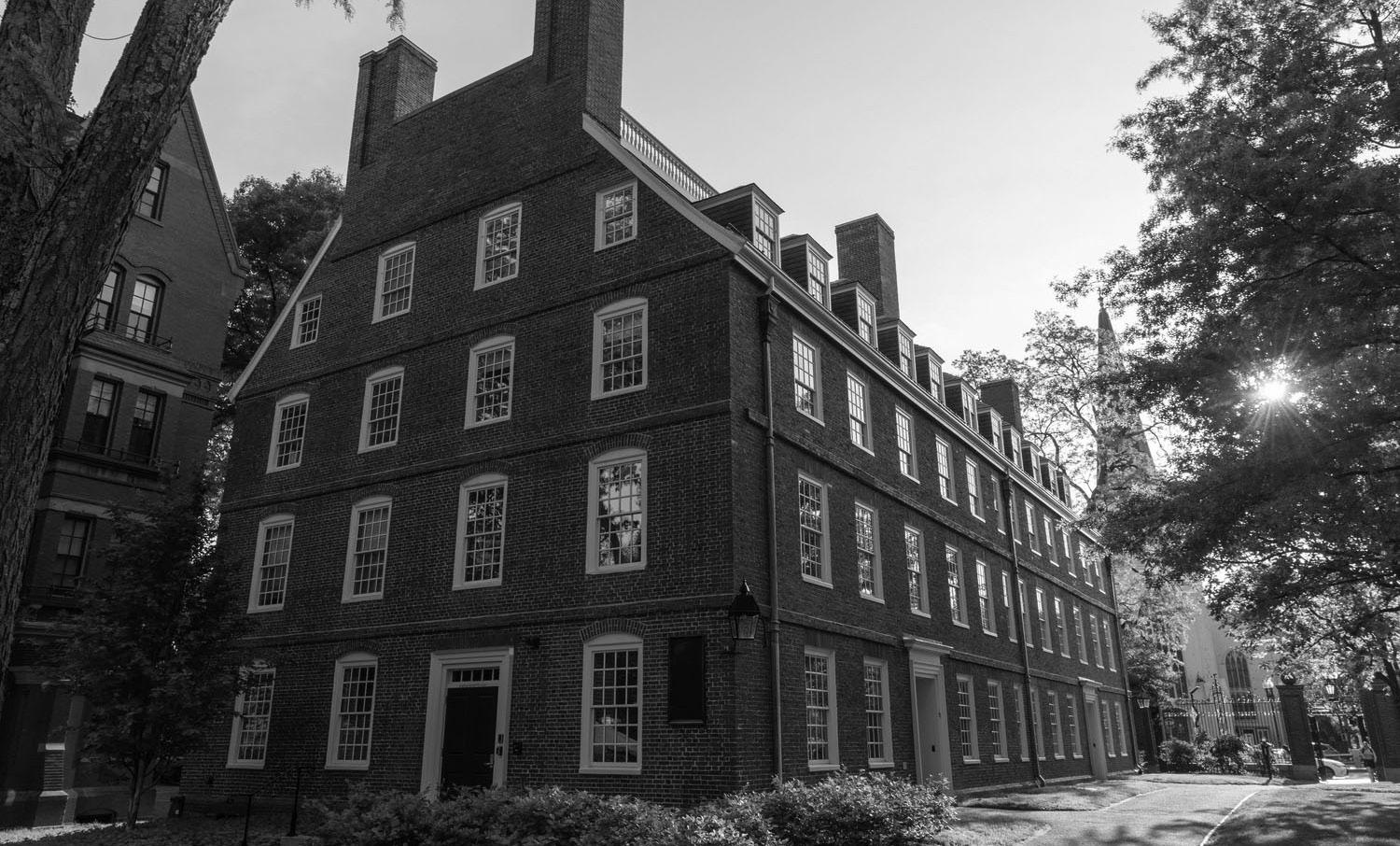
itate the use of the University’s private property,” the draft document stated.
BY NEIL H. SHAH AND TILLY R. ROBINSON CRIMSON STAFF WRITERS
Harvard adopted University-wide rules on the use of campus spaces that will prohibit overnight camping, chalking on University property, and unapproved signage and displays.
Harvard’s Office of General Counsel and the Working Group on Campus Space Use produced the document, which comes after months of pro-Palestine student protests on campus, including a 20-day encampment in Harvard Yard.
The draft policy seeks to discourage many tactics that are frequently used by campus activists, and marks another effort by interim Harvard President Alan M. Garber ’76 and his administration to prevent a return of the large-scale protests that have become a regular aspect of campus life since October 2023. Harvard spokesperson Jason A. Newton emphasized that the University is still finalizing the policies on the use of campus spaces. “The draft document obtained by the Crimson is an earlier version that was in review and may not accurately indicate the current status of guidance regarding a particular topic,” Newton wrote in a statement. “Once the document is finalized, it will be shared with the Harvard community.”
The six-page document largely draws from existing policies across Harvard in an effort to produce a common set of rules about how students can use campus buildings and spaces. The working group that helped produce the document was quietly convened over the summer and consisted of senior University officials and staff members.
The draft document frames itself as an effort to manage demand for campus spaces and to preserve Harvard property.
“Both to foster the well-being of community members and to preserve these resources for future generations, the University has an obligation to adopt rules and policies that simultaneously protect and facil -
Newton noted that there already exists guidance on the use of campus space and added that Harvard was “working to ensure that common rules and guidance around the use of campus spaces are more readily accessible to community members.”
The document, however, also warns that violations of the policy could result in penalties. Organizations and individuals that fail to comply with the campus use guidelines “may be held financially responsible for any resulting costs incurred and may be subject to other consequences for noncompliance, including referral for discipline,” according to the draft policy.
While certain policies are unsurprising — like restrictions on the distribution of alcohol at campus-wide events — other policies appear to directly target actions that some affiliates have described as being protected by their free speech rights.
The draft policy is just the latest example of campus officials attempting to clarify or standardize University policies after a year of protests in Harvard Yard and across the graduate schools.
Two weeks ago, the University announced that it would standardize its processes for fact-finding in disciplinary cases after facing criticisms that the disciplinary sanctions for student protesters who participated in the encampment were inconsistent across Harvard schools.
And, in January, Garber and top University officials issued a statement that more explicitly demarcated time, manner, and place guidelines for campus protests.
Some student activists objected to the January guidance as a targeted effort to stifle campus activism. The Harvard Undergraduate Palestine Solidarity Committee described the statement at the time as an effort to “clamp down on pro-Palestine speech on campus.”
Classics professor Richard F. Thomas, a member of Faculty and Staff for Justice and Palestine, wrote that he thought the draft policy’s emphasis on order and compliance was misplaced. ‘Safety, security and well-being; compliance with rules; orderliness.’ That could put us up there with Singapore as one of the world’s safest spaces,”
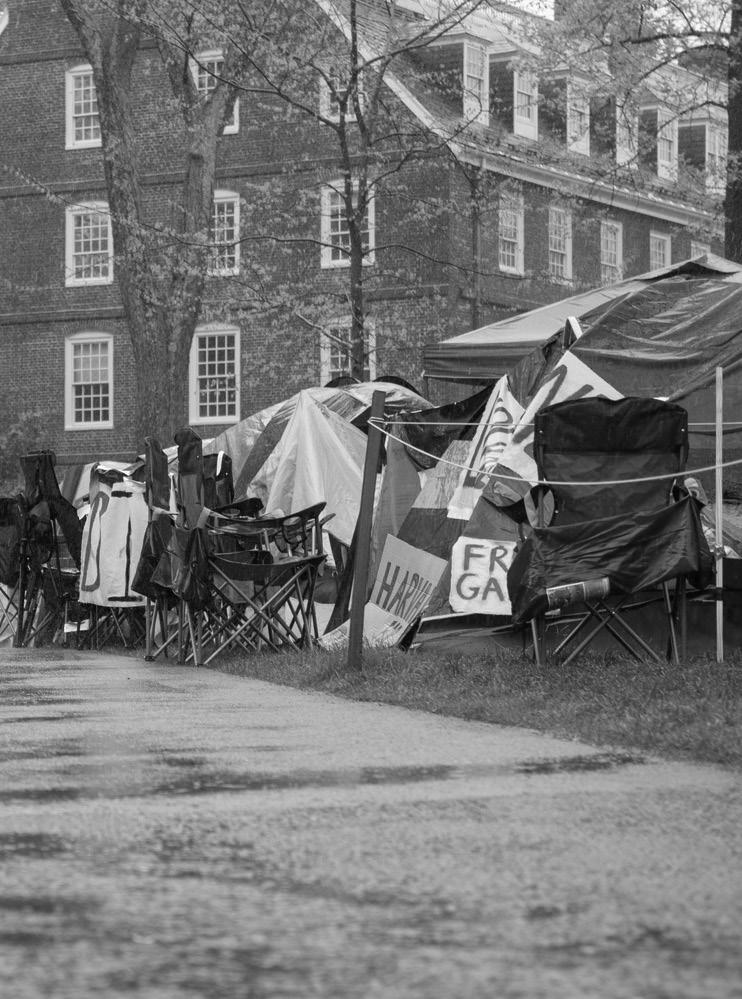
Thomas wrote. “I’m not sure that such rules will actually produce well-being however.”
Exhibits and displays — including lighting projections — would require approval from the University or other units that govern the space where they would be installed, according to the draft policy. Like existing protest guidelines, it also prohibits events that block building entrances or interfere with the flow of vehicle or pedestrian traffic.
The draft guidelines largely align with those in place at Harvard’s peer institutions, though they draw a stricter line on some protest-related activities. For example, Yale University and the University of Pennsylvania allow amplified noise or chalking with some restrictions on time or place, but Harvard’s draft rules would prohibit both activities entirely
without permission.
The draft policy would also ban individuals from filming or photographing others without their consent in all campus spaces unless they have prior authorization from school officials. The provision appears to respond to concerns from pro-Palestine organizers over students being doxxed for their participation in protests.
Under the draft policy, the University would require all events to be held by a “designated Harvard affiliate or affiliate group sponsor.” Unless explicitly permitted by site-specific policies, the policy would ban groups from co-sponsoring events with non-Harvard organizations and unrecognized student organizations.
Certain spaces — like the Science Center Plaza, a frequent site for demonstrations — contain similar co-sponsor -
ship restrictions, and existing rules prevent recognized student groups from co-sponsoring events with unrecognized or external groups.
Many of the spring protests, including the encampment, were organized by Harvard Out of Occupied Palestine, a coalition of unrecognized student groups.
Other groups that have hosted campus protests in the past, including the Harvard Feminist Coalition, are also unrecognized.
Former Harvard President Lawrence H. Summers, who has urged the University’s recent leadership to take a harder line against pro-Palestine protesters, greeted the draft policy with measured approval, but said he remained skeptical as to whether it would actually be enforced.
“These policies, like many that have been promulgated, are fine and reasonable,” Summers said in an interview. “The issue is that
the University, over the last year, has consistently failed to act and impose sanctions when policies are violated and has been slow to implement policies on behalf of Jewish student groups. That is why it is subject to multiple federal government investigations and civil suits.”
Former Harvard Medical School Dean Jeffrey S. Flier, who is a co-president of the Council on Academic Freedom at Harvard, wrote that he thought the policy “seems entirely necessary and appropriate.” If the policy is adopted, Flier said, the “key issue will be how effectively it will be implemented, and violations handled with appropriate disciplinary actions.”
“It may not take long to find out,” he added.
tilly.robinson@thecrimson.com neil.shah@thecrimson.com
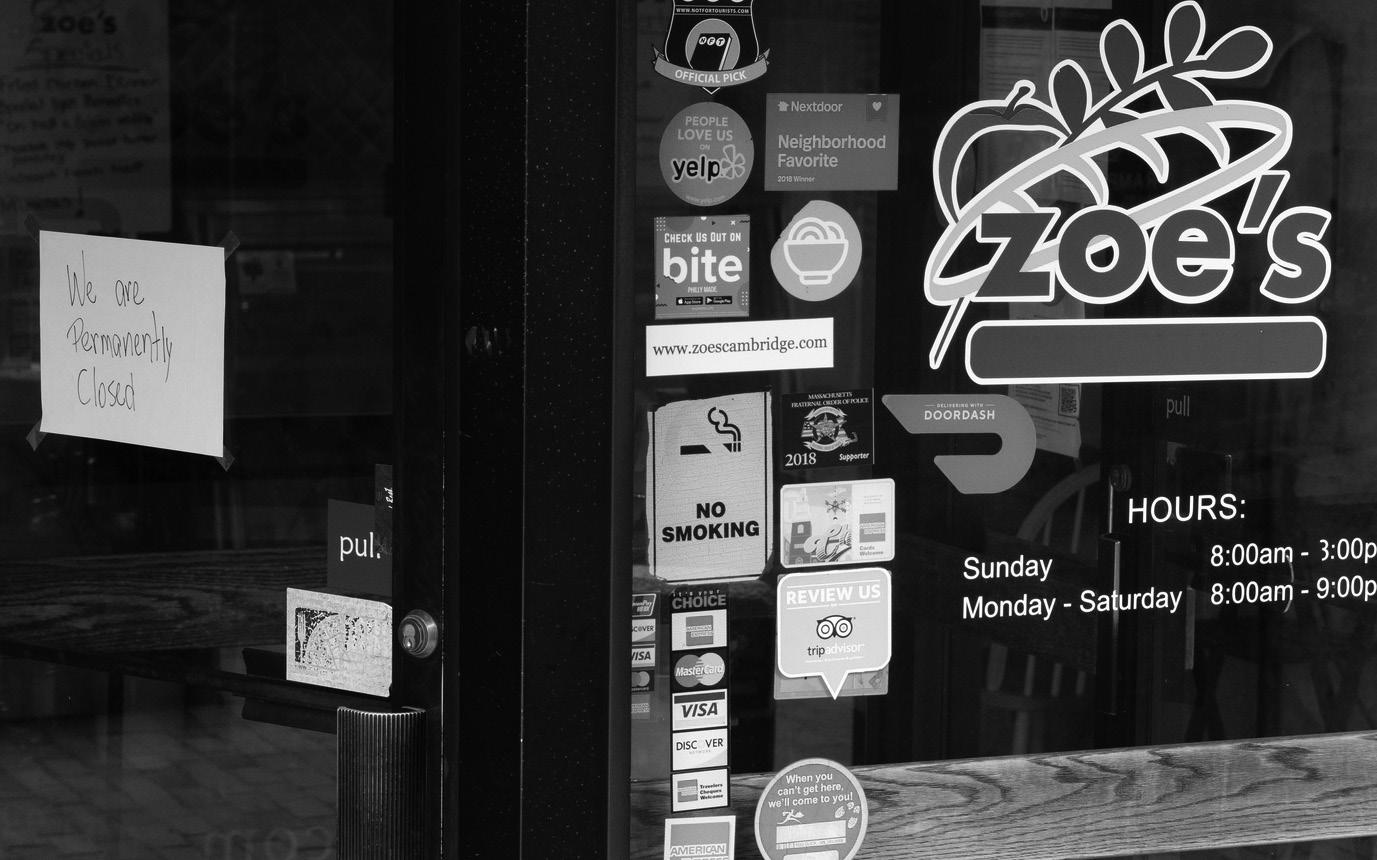
BY MATAN H. JOSEPHY CRIMSON STAFF WRITER
Zoe’s Diner, a longtime staple of Harvard Square dining beloved for its retro aesthetics, bottomless coffee, and all-day breakfast offerings, permanently closed last month.
Zoe’s, which first opened more than 20 years ago, was popular with both students and Cambridge residents alike for the price and variety of its food options. Its menu boasted a blend of American diner food, such as pancakes and milkshakes, with Greek food such as spanakopita, kebabs, and baked lamb.
Denise A. Jillson, executive director of the Harvard Square Business Association, speculated that a difficult labor market following the pandemic could have contributed to the closure.
“Many of our eateries have had trouble getting staff post-pandemic,” she said in an interview last month. “Labor shifted, and it’s not an easy thing to do.” Jillson added that increased breakfast options closer to the heart of Harvard Square may have squeezed out Zoe’s, which is located farther down Massachusetts Avenue than some competitors. Harvard Square has seen an influx of breakfast-serving coffee shops and restaurants in recent years, including Tatte, Bluestone Lane, and, most recently, Friendly Toast.
Zoe’s management did not respond to a request for comment about their closure.
Beyond its combination of cuisines, Zoe’s was known for its affordability. Charles Cherney ’89, a real es-
tate agent with an office across the street from the diner, praised the restaurant as a “place Harvard students can afford in Harvard Square.”
“As I sat there, either on my own or with someone for a business lunch, and I looked around and saw these Harvard students, I thought, ‘Oh, this is kind of nice,’” Cherney said. He added that he was sad to see Zoe’s go. “They were very welcoming and very friendly and very kind-hearted,” he said. “It was refreshing.”
Jillson was similarly fond of Zoe’s atmosphere — and nostalgic decor.
“When you walked inside, you really felt like you were stepping back in time,” she said. “It was fun,” she added. “It was a fun vibe.”
In the end, Lauren S. Scruggs ‘25 was never leaving Paris without gold.
Scruggs propelled Team USA to victory in the 2024 Paris Olympics women’s team foil tournament on Thursday, holding off Italy’s three-time Olympian Arianna Errigo to give the United States its first-ever team gold medal in fencing.
Scruggs, who already won a silver medal in the individual foil event last Sunday, became the first current Harvard student to win a gold medal in the Summer Olympics since David Berkoff ’89 in 1988. Team USA, led by Scruggs and individual foil gold medalist Lee Keifer, breezed through the tournament on Thursday as they defeated China and Canada on their way to the final against No. 1-ranked Italy. The victory was a true team effort for the Americans as substitute Maia M. Weintraub contributed two clutch performances in the final against Italy as Kiefer, Scruggs, and Jacqueline Dubrovich all struggled.
Scruggs started the final against Italy strong as she defeated Martina Favaretto 5-1 in the second bout to give Team USA a five-point advantage. After a difficult bout for the Americans against Italy’s Alice Volpi, Kiefer won her bout by one point and Weintraub extended the lead with a two-point victory over Errigo. Italy earned a point back as Volpi’s bout against Scruggs ended 6-5, bringing the Italians back to within five points of Team USA as they entered the last three bouts of the final.
Weintraub provided a dominant performance against Italian
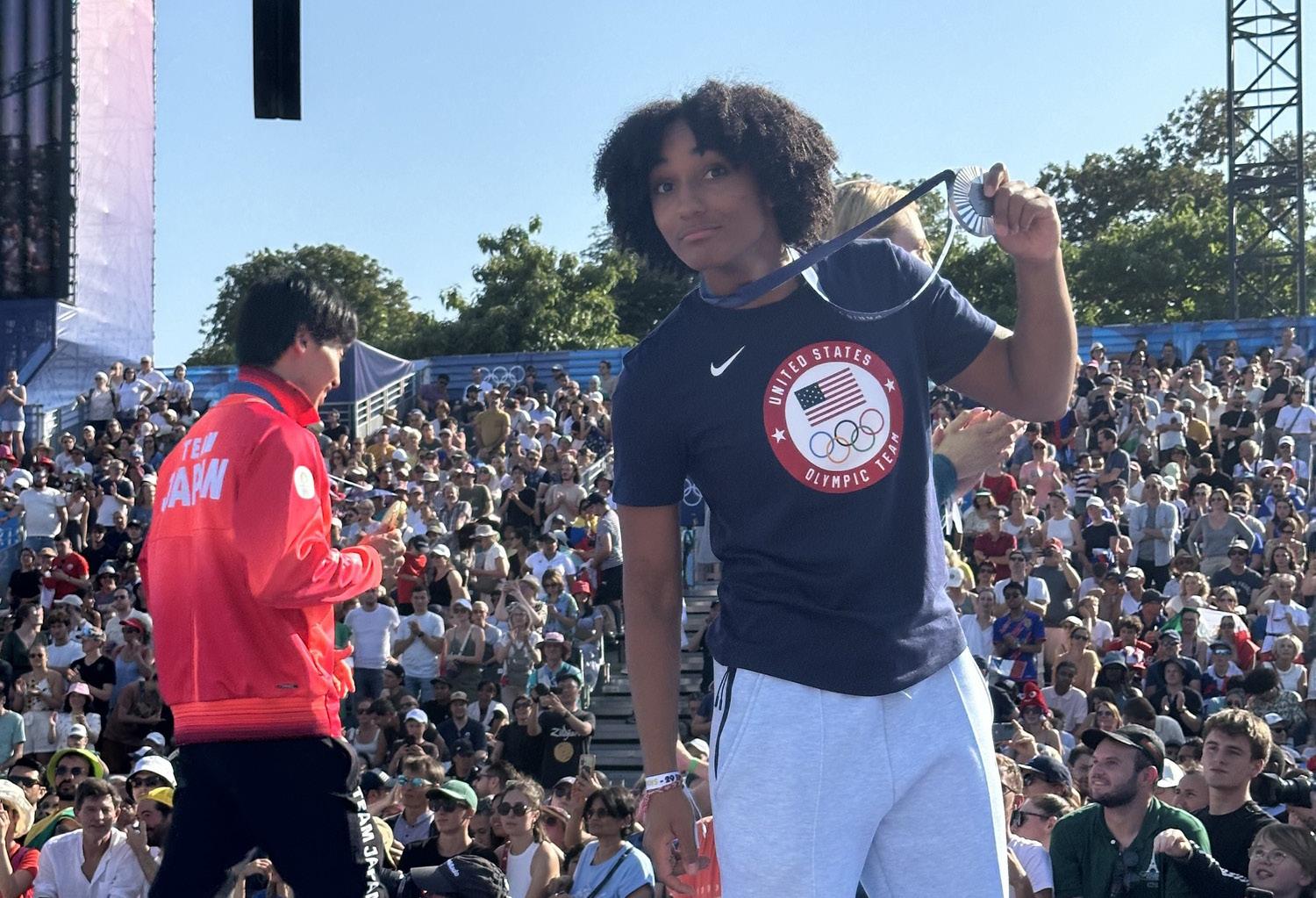
substitute Francesca Palumbo to give Team USA a nine-point lead as Keifer and Scruggs prepared for their final bouts of the tournament.
While Keifer struggled against Volpi, the two-time individual foil gold medalist recovered enough at the end of her bout to hand off an eight-point lead to Scruggs in the final bout of the tournament. With the score 40-32, Scruggs needed only five touches to secure the gold medal for Team USA. But Errigo quickly proved
why she is considered one of the best foil fencers in the world. The left-handed Italian took the first four points against Scruggs to narrow the score to 40-36.
Scruggs and Errigo traded the next four points, but then Errigo took yet another point against Scruggs to bring Italy within three touches of tying the United States. The Queens, New York native, however, would not let Errigo get any closer. Scruggs won the next three points to give Team USA the gold.
On Team USA’s path to the final, Scruggs faced off against her Harvard teammate Jessica Z.J. Guo ’27 for the second time of the 2024 Paris Olympics during the semifinal matchup against Canada. Guo and Scruggs met each other during the individual tournament’s round of 16, where Scruggs easily defeated Guo. The team tournament provided Guo an opportunity to extract some revenge against Scruggs, as she breezed past Scruggs 5-1 in the semifinal’s
opening bout. With Team USA facing a four-point deficit entering the third bout of the semifinal, Kiefer suddenly turned the tables as she outscored her Canadian opponent, the 16 yearold Yunjia Zhang, 14-3 to turn the deficit into a five-point advan-
took another lead that was quickly erased by Berthier as the first period of the bout expired with a 9-9 tie.
Lauren S. Scruggs ’25 won a silver medal at the 2024 Paris Olympics, as the Harvard fencer’s dominant run through the women’s individual foil tournament last Sunday ended with a defeat in the gold medal bout to fellow American Lee Kiefer.
Scruggs became the first Harvard athlete to earn a medal in Paris as she earned four victories before running into Kiefer, the defending women’s foil champion, in the tournament’s final bout. Kiefer dominated Scruggs as she scored point after point to secure a 15-6 victory over her American teammate.
In addition to becoming the first Harvard athlete to earn a spot at the podium, Scruggs defeated her Crimson teammate Jessica Z.J. Guo ’27 in an all-Harvard round of 16 bout last Sunday. Scruggs also made history as the first Black fencer from the U.S. to win an Olympic medal in a women’s individual event.
But Scruggs’ Cinderella run through the tournament last Sunday almost ended before it began. She earned a bye in the tournament’s first round, which sent Scruggs directly to the round of 32 for her first bout: a matchup against Singapore’s Amita Berthier that almost got away from Scruggs.
The Queens, New York native quickly went down 2-1 in the round of 32, but found her momentum and scored five straight points. Berthier responded with four straight points to tie the bout at 6. The rest of the first period was a back and forth battle as Scruggs and Berthier danced up and down the piste. Scruggs
Berthier entered the second period strong as she scored three points in a row to take a 12-9 lead and come within just three points of victory. But Scruggs found her footing and tied the bout at 13.
The 24th-seeded Singaporean would not score another point as Scruggs won 15-13 to secure a meeting with Guo, her teammate and 8th-seeded Canadian fencer, in the round of 16.
The bout was a rematch of the 2024 NCAA women’s foil championship in March, which ended in a victory for Guo. While the teammates are close in real life, they barely acknowledged each other before the start of the bout. Their meeting in Paris offered Scruggs an opportunity for revenge, and she quickly took advantage by winning the bout’s opening five points. Guo gained some momentum and cut Scruggs’ lead down to three points by the end of the first period.
Guo continued to chip away at Scruggs’ advantage during the second period, narrowing the score to 12-11. But Scruggs, who was consistently faster off the line, won the next three points to win 15-11. As she rushed off the piste, Scruggs roared into the camera as she secured a round of 8 matchup against Italy’s Arianna Errigo, the tournament’s No. 1 seed. The bout against the threetime Olympic medalist proved to be Scruggs’ greatest challenge en route to the gold medal match. Errigo and Scruggs traded the first four points of the bout, but Scrugg won the next six points
to take an 8-2 lead over Errigo. The momentum shifted over the next 12 points as Errigo dominated Scruggs and the score became attempted to close the gap, but Scruggs’ lunges and counterattacks proved too much
for the Canadian to overcome. Scruggs eventually emerged victorious with a decisive 15-9 semifinal win.
pushed Kiefer off the edge of the piste. The two Americans quickly traded the next three points to tie the bout 2-2. Kiefer,

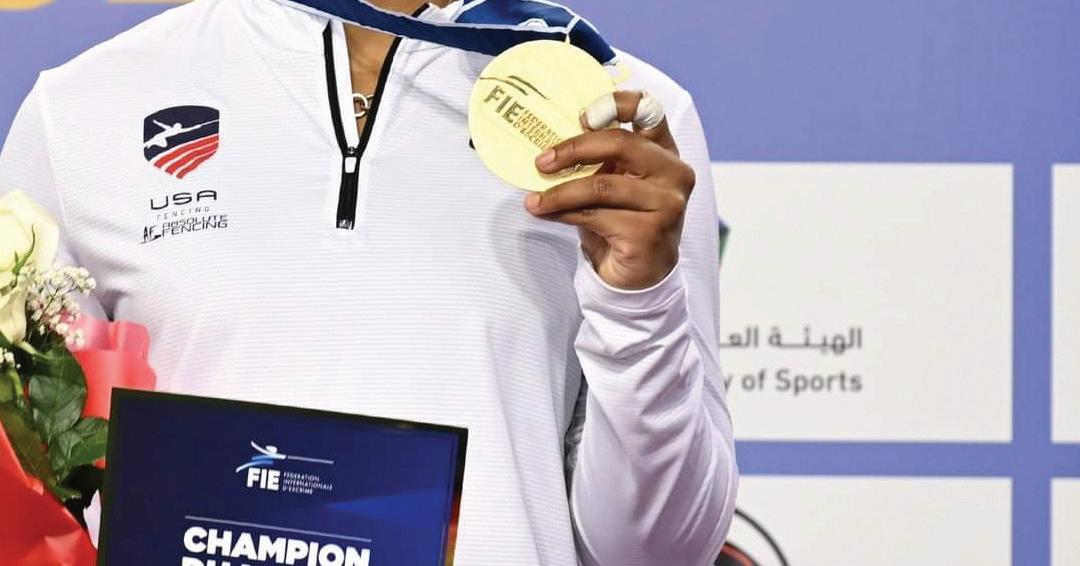
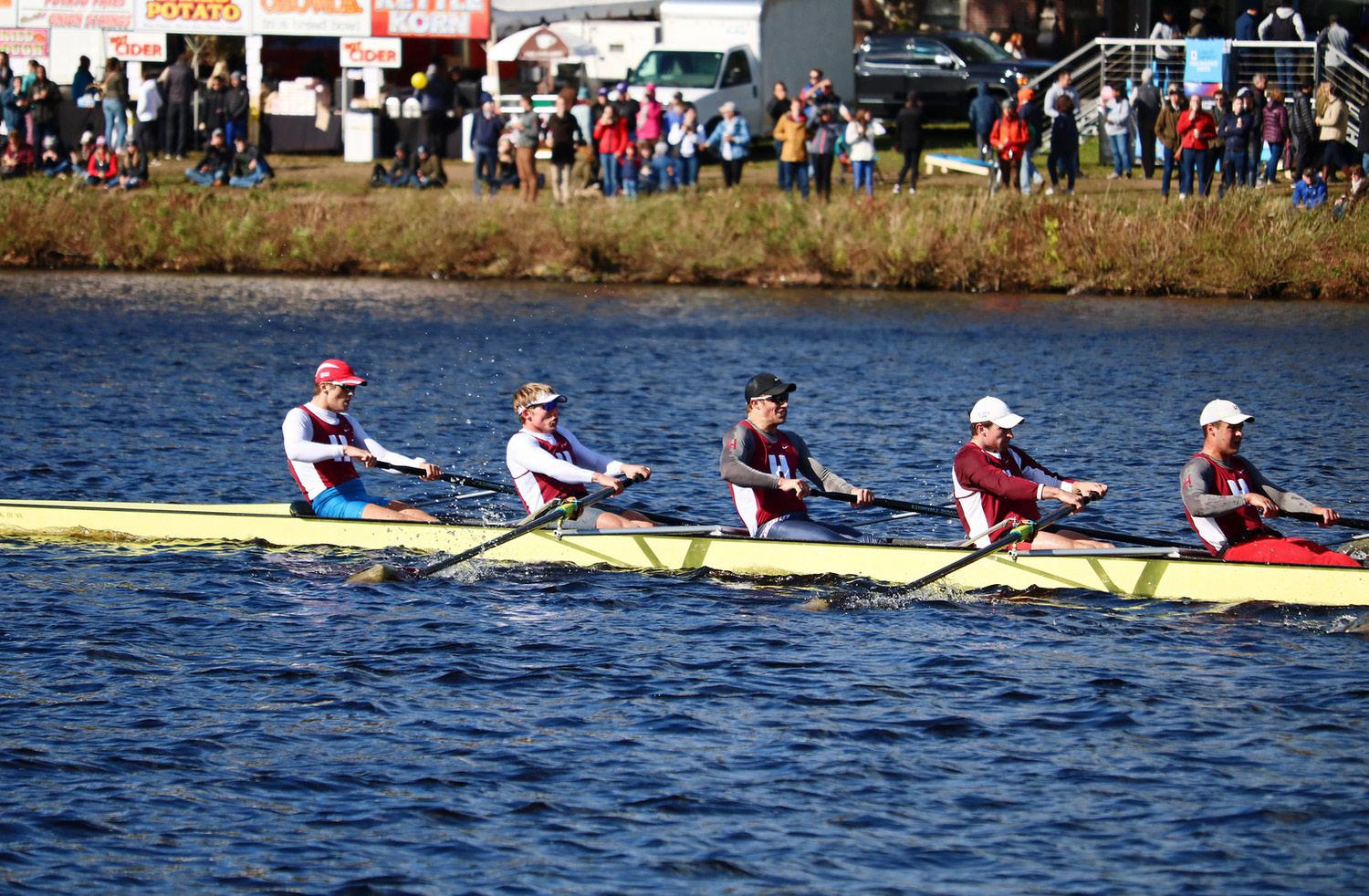
Liam R. Corrigan ’19 won a gold medal with Team USA in men’s coxless four rowing at the 2024 Paris Olympics on Thursday, as the United States narrowly edged out New Zealand to win its first gold medal in the event since 1960.
Great Britain, featuring former Harvard rower David F. Ambler ’20, won bronze in the same race. Corrigan and Ambler are Harvard’s second and third Olympians to medal after Lauren Scruggs ’25 won silver in the women’s individual foil tournament last Sunday. Corrigan, who rowed for Harvard from 2015 to 2019, is the first Harvard alum to win a gold medal in any Summer Olympics event since Caryn P. Davies ’05 and Esther R. Lofgren ’08-’09 each won a gold medal in rowing at the 2012 London Olympics. For Team USA, the gold med -
al represents redemption from the 2020 Tokyo Olympics when — for the first time in Olympic history — none of the U.S. boats brought home an Olympic medal. At the Tokyo Games, the men’s coxless four boat — which did not include Corrigan but did feature another Harvard alum Clark A. Dean ’23 — finished fifth. Corrigan’s boat, the men’s eight boat, finished fourth. In the heats prior to the final in Paris, the U.S. boat dominated the rest of the field from the start of the race and beat out defending gold medalist Australia
to guarantee a spot in the final.
The U.S. boat also got out to an early lead in the final and looked in a good position to win gold until the New Zealand boat mounted a challenge in the last 300 meters of the race.
Corrigan and the rest of the U.S. boat responded to the challenge, pulling away from New Zealand and ultimately beating them by a little over eight-tenths of a second.
Ambler and Great Britain’s boat got off to a rocky start in the final, starting off in the back of the pack after being the top seed coming into the Paris Games. They managed to recover their
position, and overcame the Italian team’s lead to secure the bronze. Corrigan grew up playing basketball in his hometown Old Lyme Connecticut before his coach, who also coached rowing, recruited him for the row
ing team. By college, Corrigan was rowing for Harvard. Prior to the Paris Games, Corrigan spoke about his ex
perience rowing in college and gave credit to the coaching he received at Harvard for helping his stroke and creating a “sup
portive environment” where it
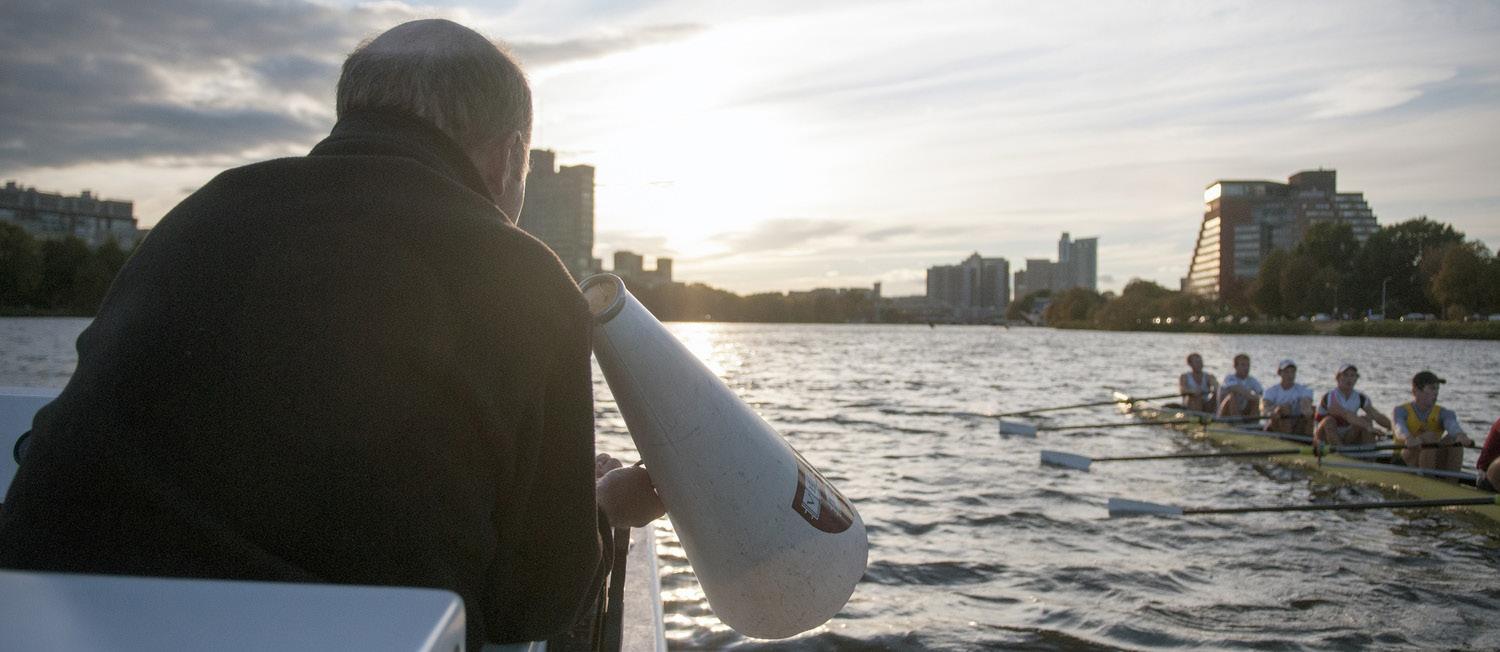
Kristen T. Faulkner ’16
won gold in the women’s road race at the 2024 Paris Olympics on Sunday, shocking the world of cycling as the 31-yearold American raced past the medal favorites in a competition she was not supposed to participate in — much less win.
Faulkner, making her first-ever appearance at the Olympics, pulled away late from the three other cyclists in medal contention to breeze to a gold medal. The Alaska native was in a chasing group with Belgium’s Lotte Kopecky for most of the race’s final stages but an acceleration ahead of the final kilometer left Faulkner all alone as she crossed the Seine to reach the finish line.
Faulkner’s victory earned the U.S. its first gold medal in the event in 40 years, and became the first-ever Harvard alumnus to win a medal in road cycling. The medal also brings Harvard’s overall tally this Olympics to eight — the second-highest medal count in school history behind only the 1896 Games, where Harvard alumni won 12 medals.
Marianne Vos from the Netherlands, who won gold in the event in 2012, finished second with Kopecky of Belgium behind her. Both women finished nearly in line with the fourth place finisher Kata Blanka Vas of Hungary. The extraordinary circum-
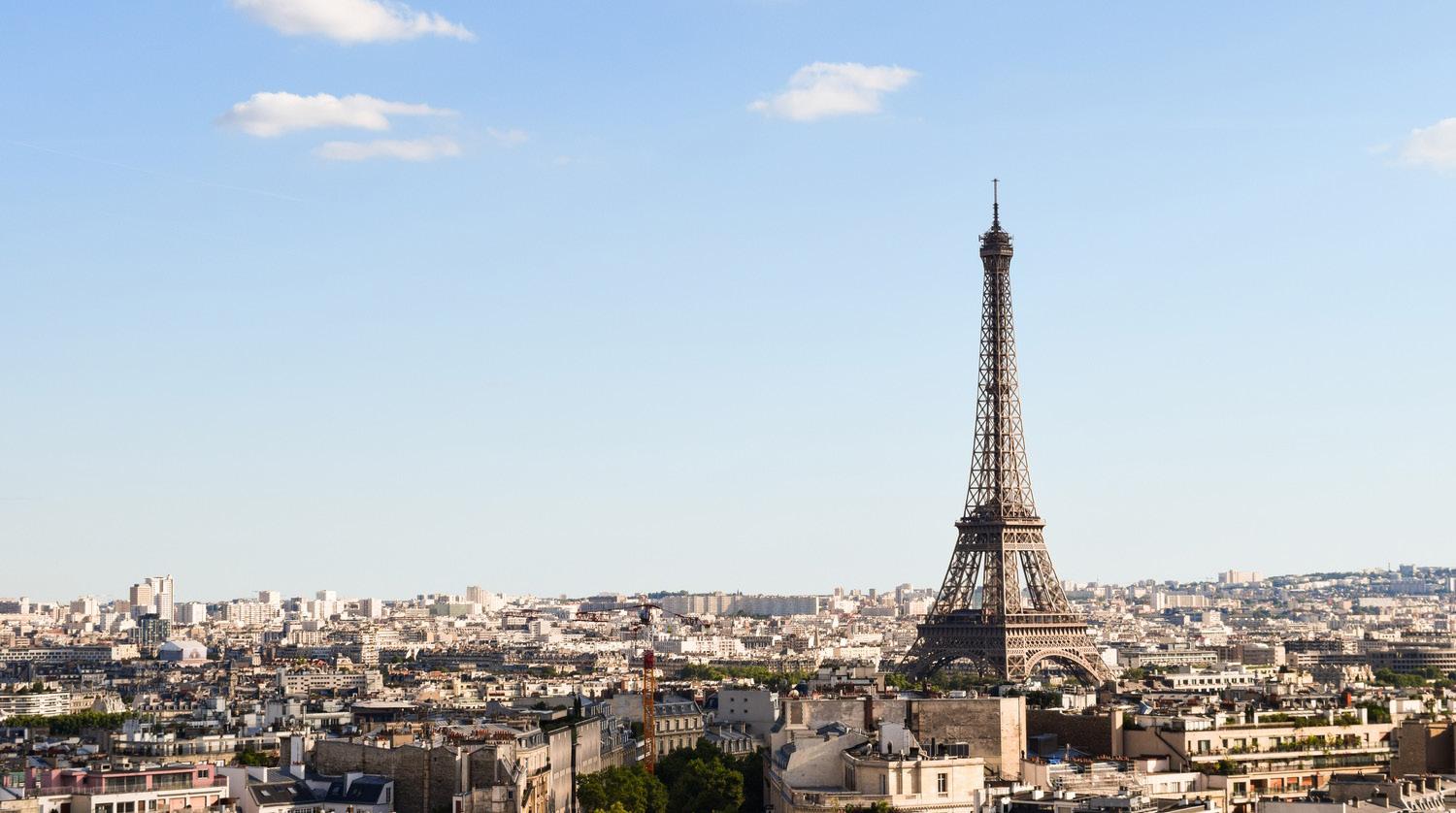
stances behind Faulkner’s participation in the event only added to the drama behind her stunning upset. She was initially not supposed to race in the event and scheduled only to compete in cycling’s team pursuit race later this week. But Faulkner earned a spot in the competition after fellow American cyclist Taylor Knibb pulled out to focus on the triathlon. At Harvard, Faulkner was a student-athlete — just not in cy-
cling. She participated on the lightweight rowing team and only began cycling after graduation, when she decided to pick it up as a hobby in New York’s Grand Central Park.
Faulkner enjoyed the sport so much that she eventually decided to quit her full-time venture capital job in 2021 to train professionally.
Faulkner said in an interview before the Olympics that the discipline she learned as a Harvard rower — especially the early morn-
ing practices and dealing with the weight of expectations — helped her when she began training in cycling while working in New York.
“The pressure to perform, it’s something I think a lot of Harvard kids know how to manage quite well,” Faulkner said. “And at this level of elite sport, there’s a lot of pressure to perform.”
When Faulkner eventually left her job, it was to pursue her dream of getting to the Olympics that began when she was a child watching the Sydney Games. “I think for me, this was like the culmination of my biggest life dream I’ve ever had,” she said. Faulkner spoke about the risk she took in leaving her “dream” job to try to get to the Olympics — saying there were people “who were really questioning my decision.” Faulkner said making the Olympic team made “the sacrifice and the risk all worth it.”
Team
USA’s all-Harvard men’s fencing saber squad crashed out of the individual tournament at the 2024 Paris Olympics on July 27, a shock upset for a group that many expected to compete for at least two spots on the podium.The four-man saber team, led by threetime Olympian and reigning saber world champion Eli Dershwitz ’19, were swiftly eliminated from the tournament as the Crimson saber fencers all suffered defeats in their first or second bouts. The 4th-seeded Dershwitz suffered a brutal upset in his first bout of the tournament as the 29th-seeded Hungarian Csanád Gémesi dominated at the end of the bout to win 15-10.
Though Dershwitz and Gémesi initially found themselves in a tightly contested bout with multiple lead changes through the first half, Gémesi had a slight 8-7 advantage at the half. Dershwitz later scored three points to tie the bout at 10, before Gémesi punched his ticket to the round of 16 by scoring five straight points against Dershwitz.
Incoming Harvard freshman Colin Heathcock was also upset in the first bout of the tournament, as the 5th-seeded American lost 15-10 to South Korea’s 28th-seeded Park Sangwon.
Heathcock started strong as he took a quick and aggressive 4-0 lead against Park. But the tables quickly turned as Park won the next eight points, which he were mostly awarded by the referee through right-of-way — a set of criteria in saber fencing that the referee uses to determine who wins closely contested points.
Heathcock gained momentum for a comeback as he won the first three points after the half, but Park continued to steal the bout’s most closely contested points as the referee ruled in his favor. Heathcock won a couple more points toward
the end of the bout, but it wasn’t enough to prevent Park from sending him back home to the Olympic Village.
Mitchell S. Saron ’24, the lowest seeded American in the tournament, had the most success on a disappointing day for the Crimson Olympians with a victory over France’s Maxime Pianfetti in the round of 32.
Saron literally jumped to a lead at the start of the bout, leaping in the air to score his first point. The 23 year-old American won six of the first seven points and entered the half with an 8-2 advantage. Pianfetti gained some momentum in the second half to come within a two-point deficit, but Saron remained in control and clinched the tournament’s sole victory for Team USA with a 15-12 win.
As Saron walked off the piste with his first Olympic win, he confidently raised a finger to his lips and shushed the disappointed crowd who were pulling for Pianfetti.
The script quickly flipped as Saron fell 15-12 to Egypt’s Ziad Elsissy in the round of 16. Saron put up
a valiant effort as he kept the bout competitive until the last point, but he ultimately could not overcome the tournament’s No. 1 seed.
Elsissy took an early lead against Saron, as the two athletes went back-and-forth for much of the first half. With the two fencers tied at 5, Elsissy won the next three points to take an 8-5 lead into the half. Saron closed the gap to pull within one point of Elsissy near the end of the bout, but Elsissy secured a place in the next round with a right-of-way call that went in his favor.
Despite a difficult day for Team USA’s men’s saber team, they were unable to take advantage of an opportunity for redemption at the team event later in the Olympics, where Dershwitz, Heathcock, and Saron were joined by alternate Filip J. Dolegiewicz ’24. The all-Harvard team fell to Iran in the first round of the team tournament on July 31, in a major upset that sent the Americans home early.



